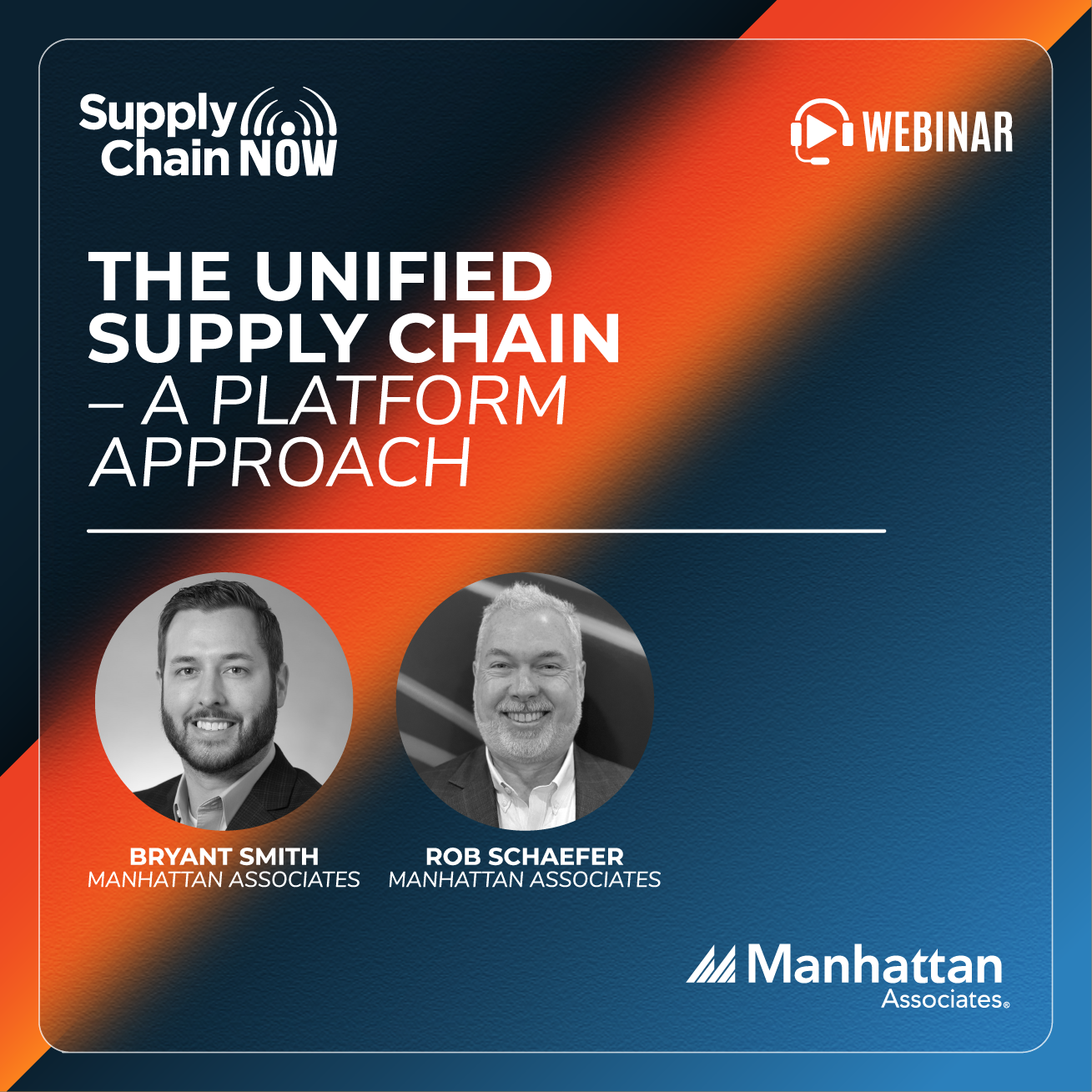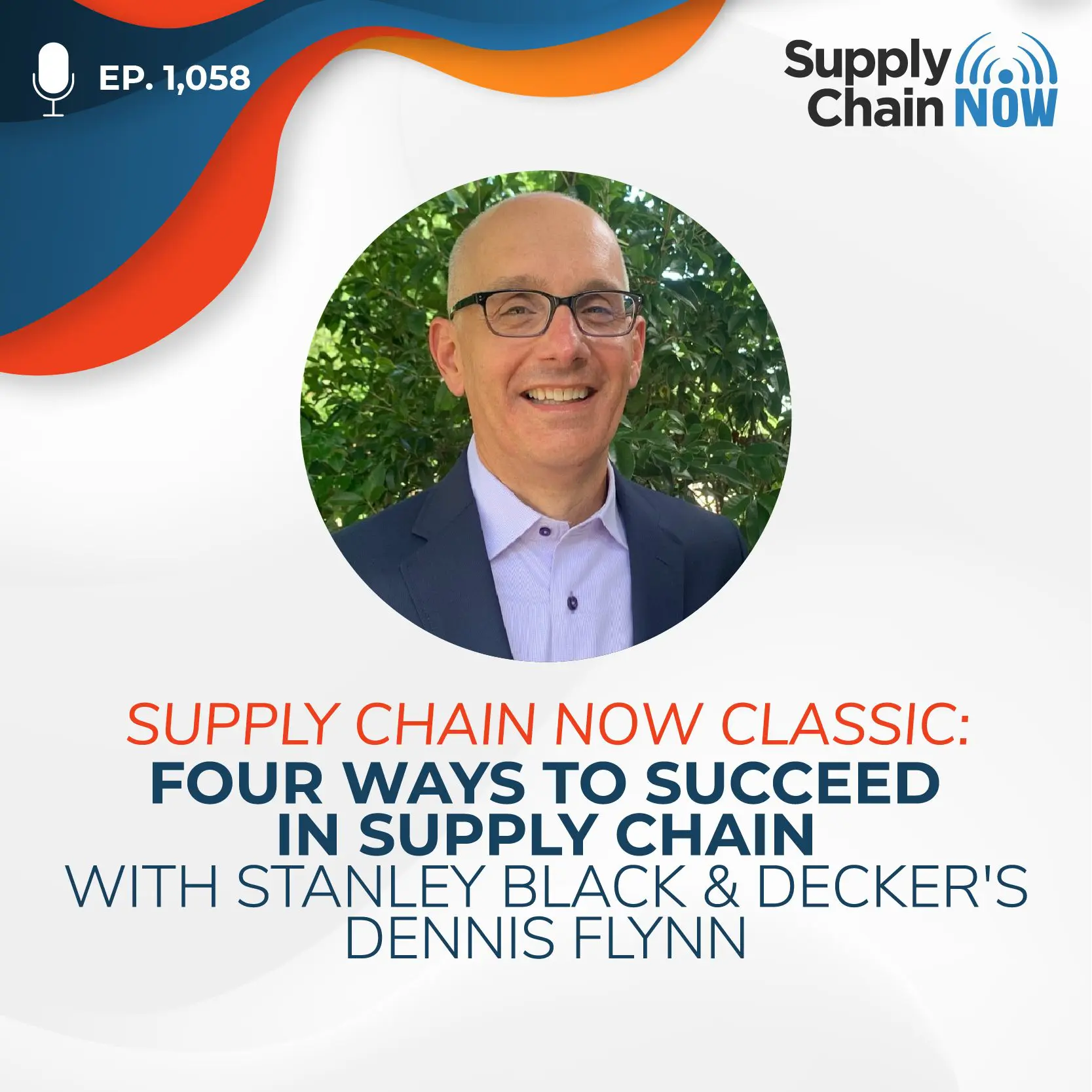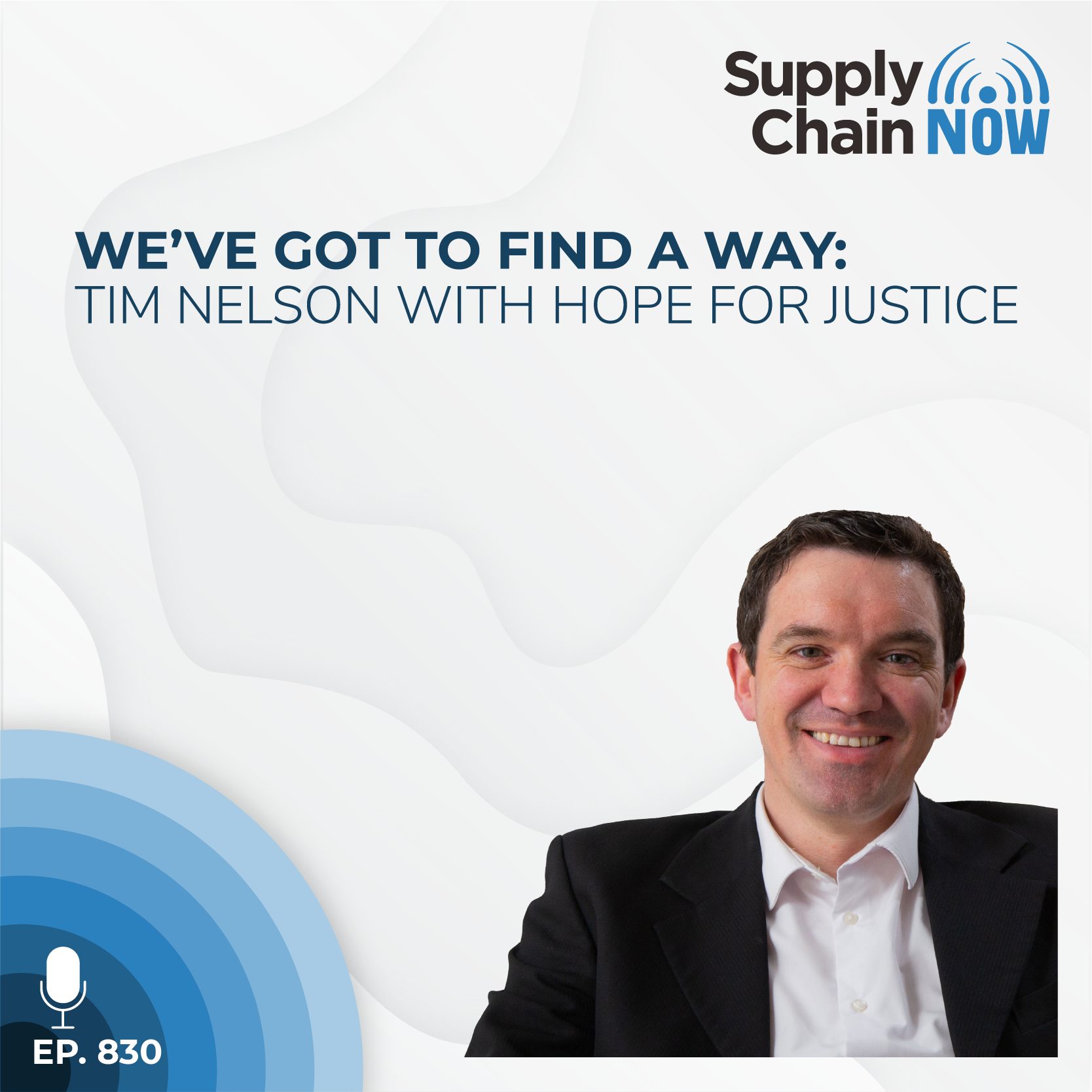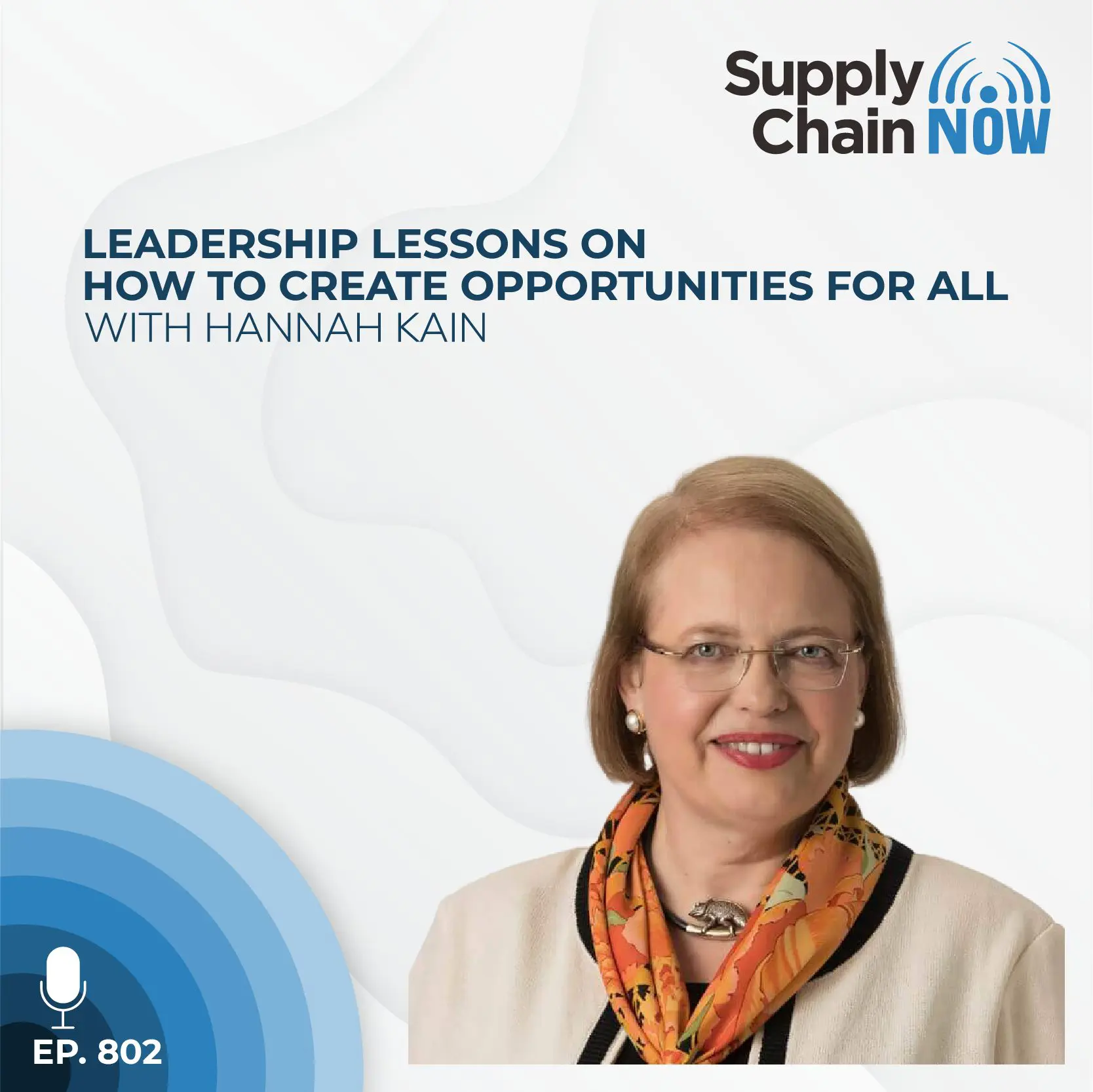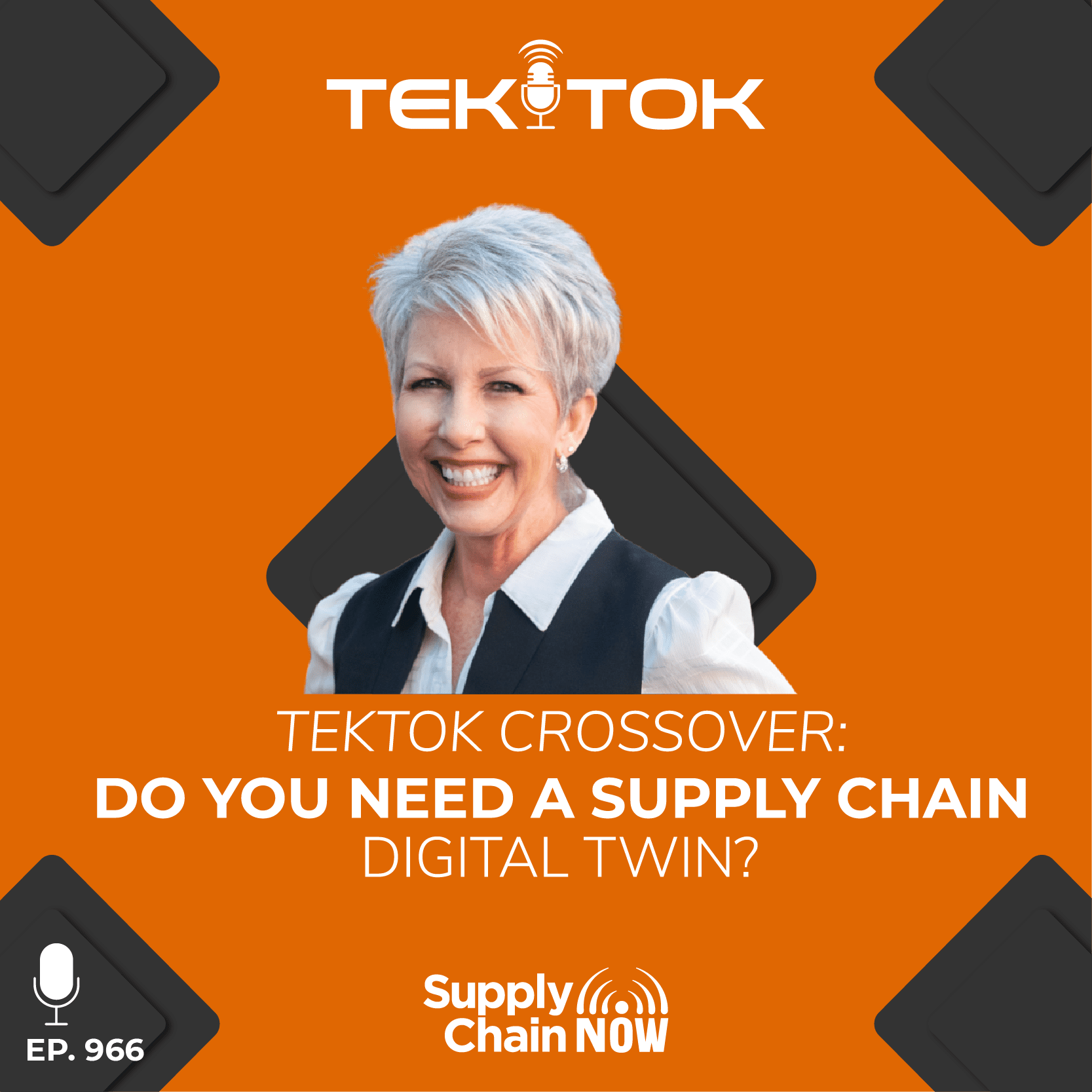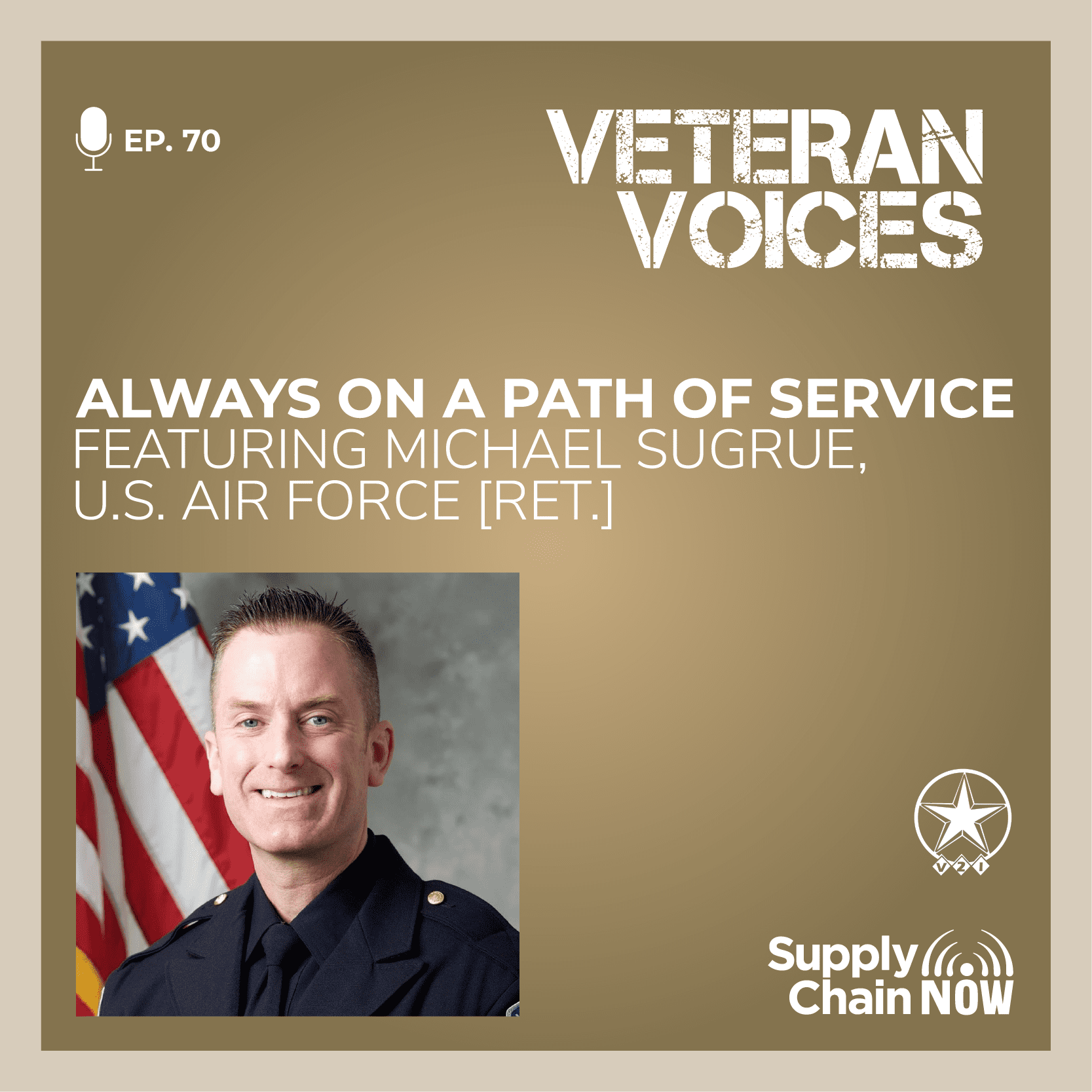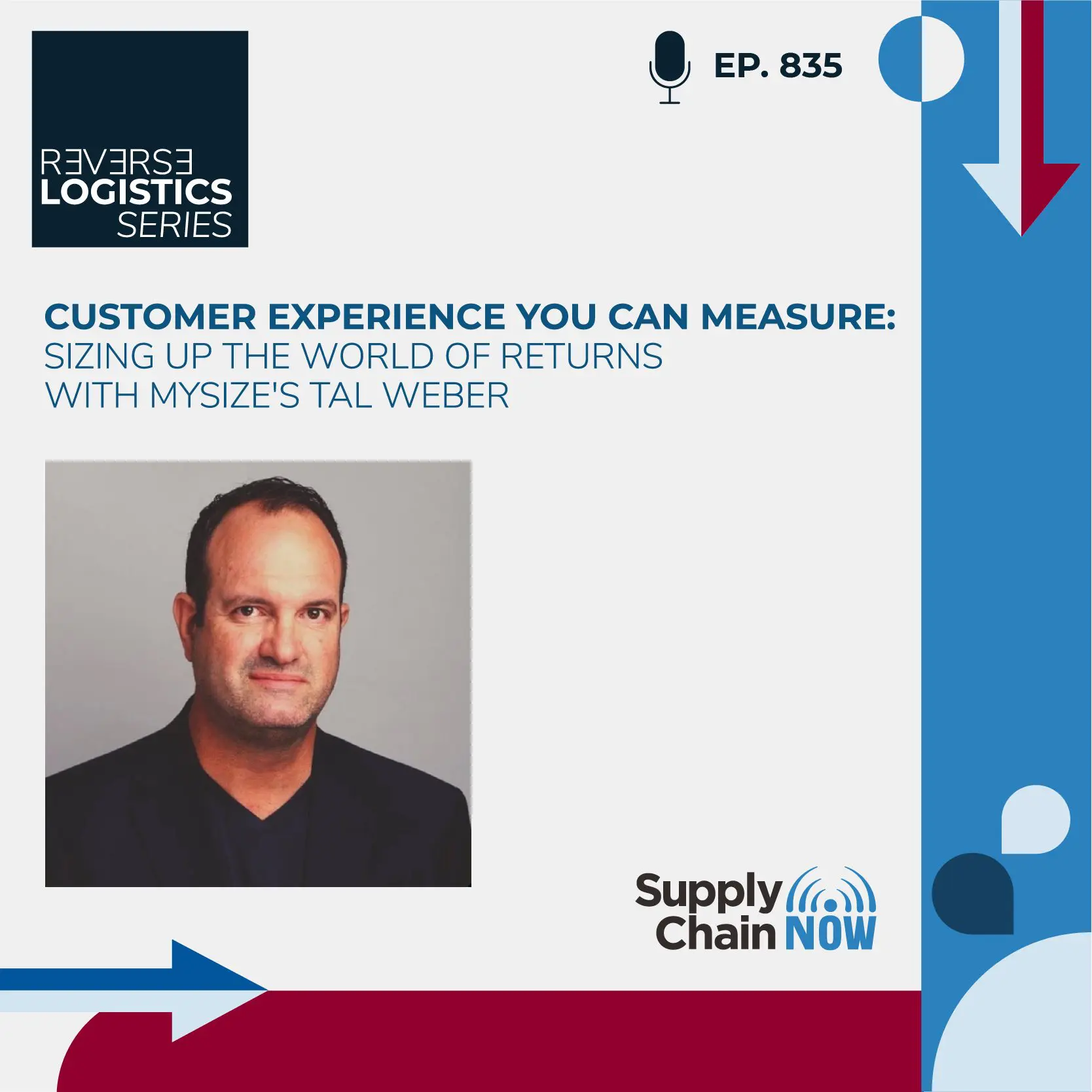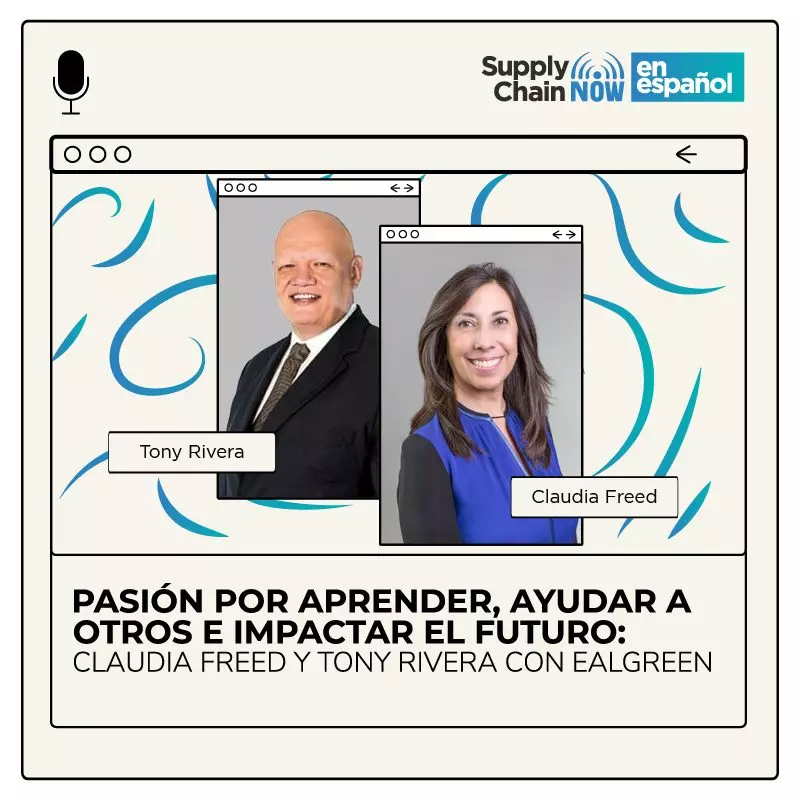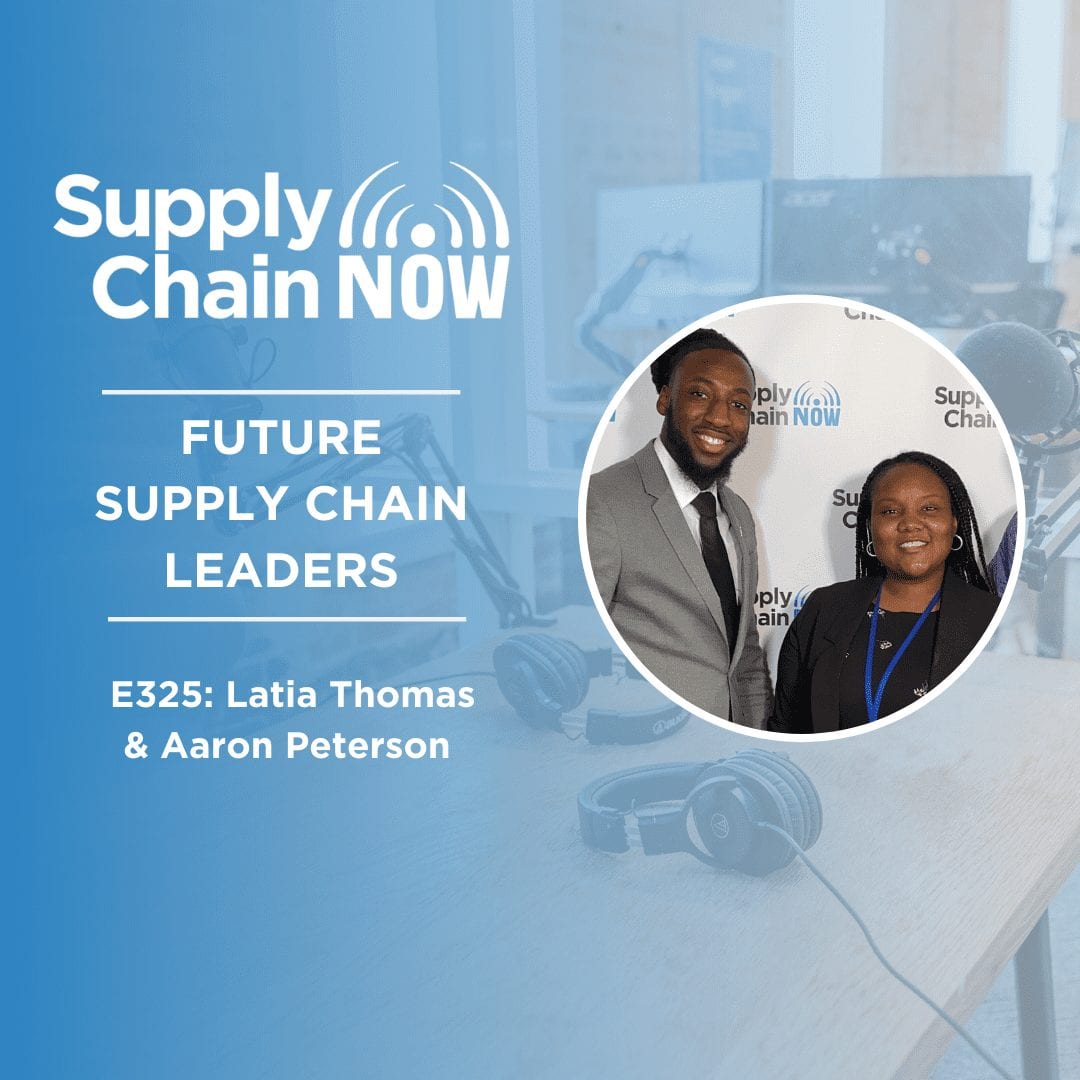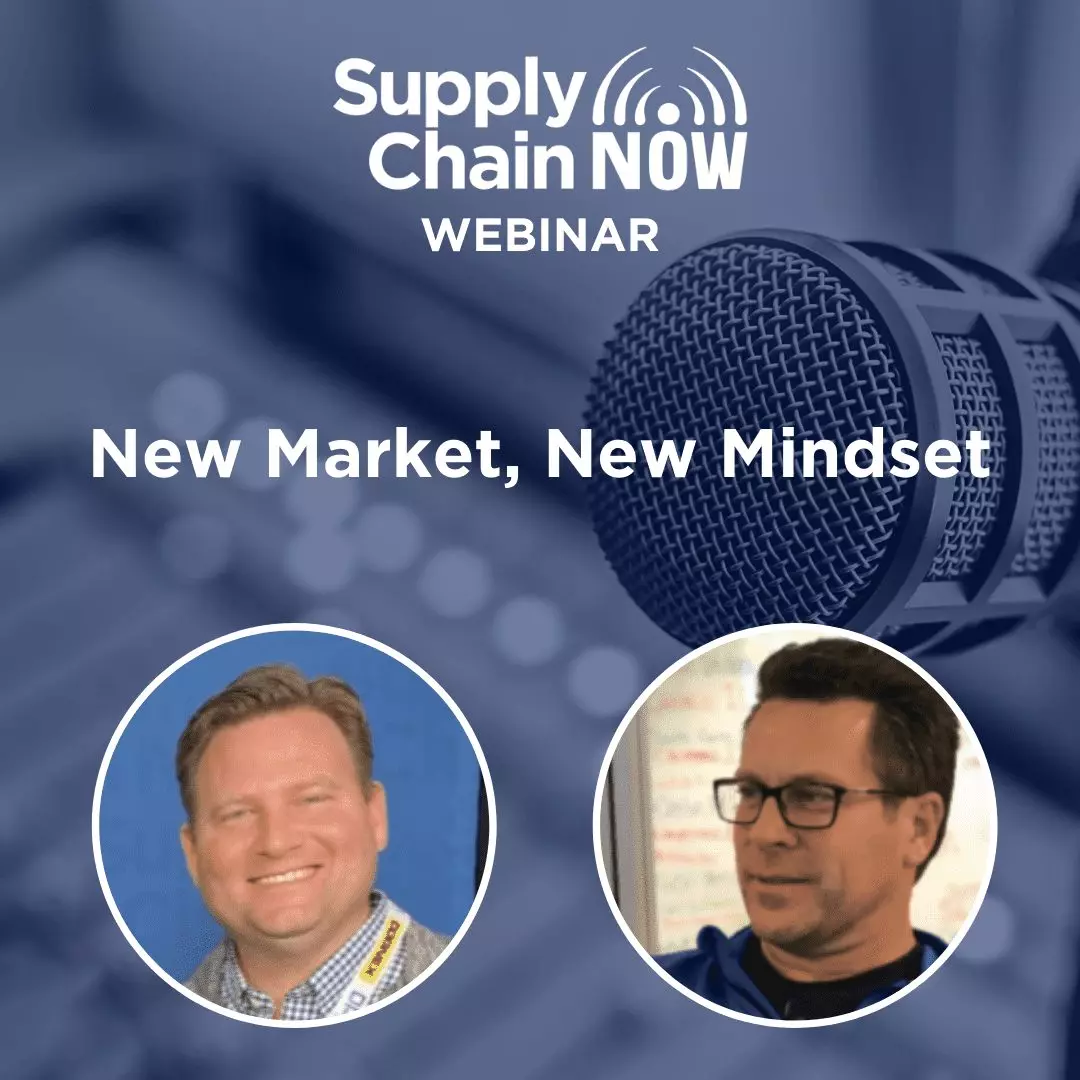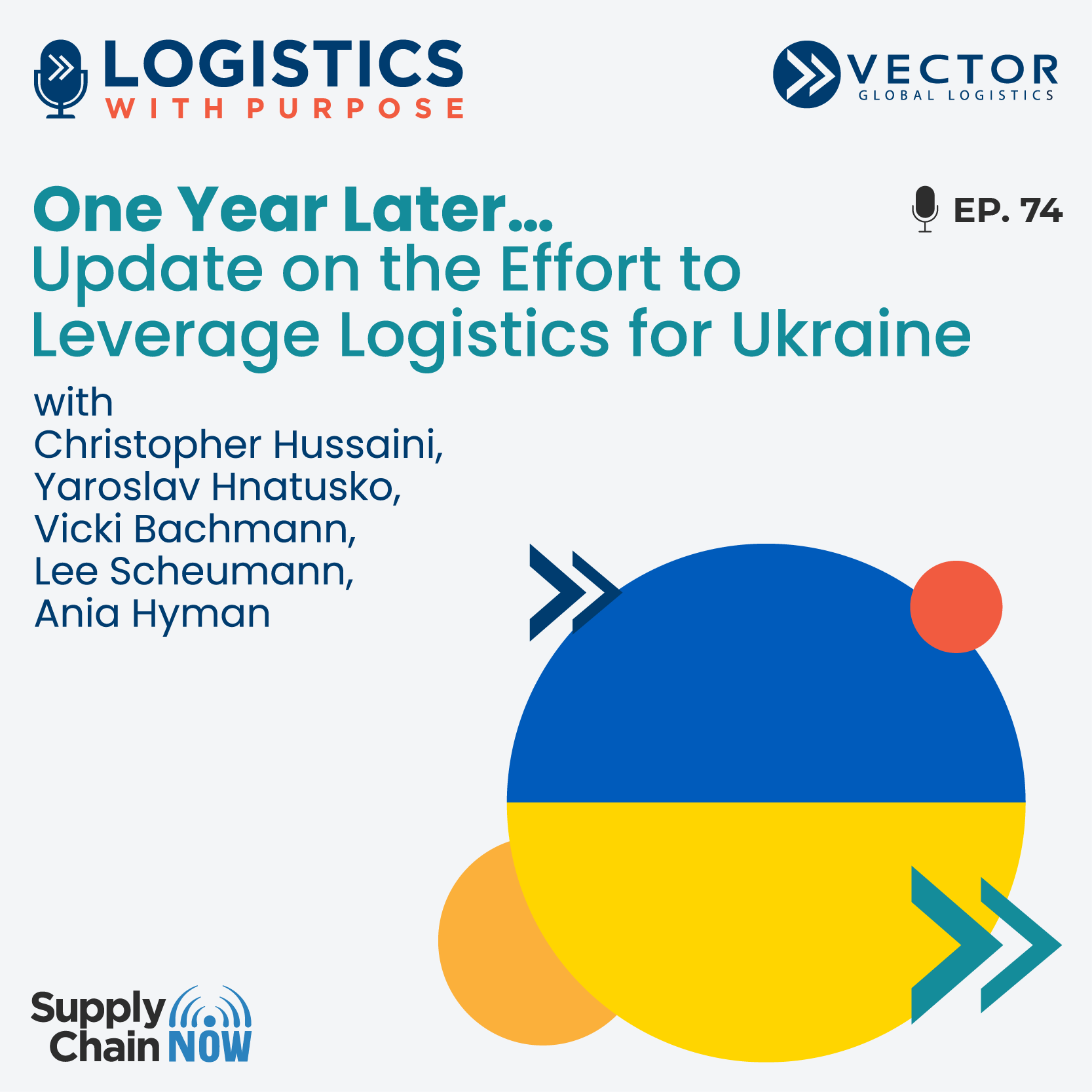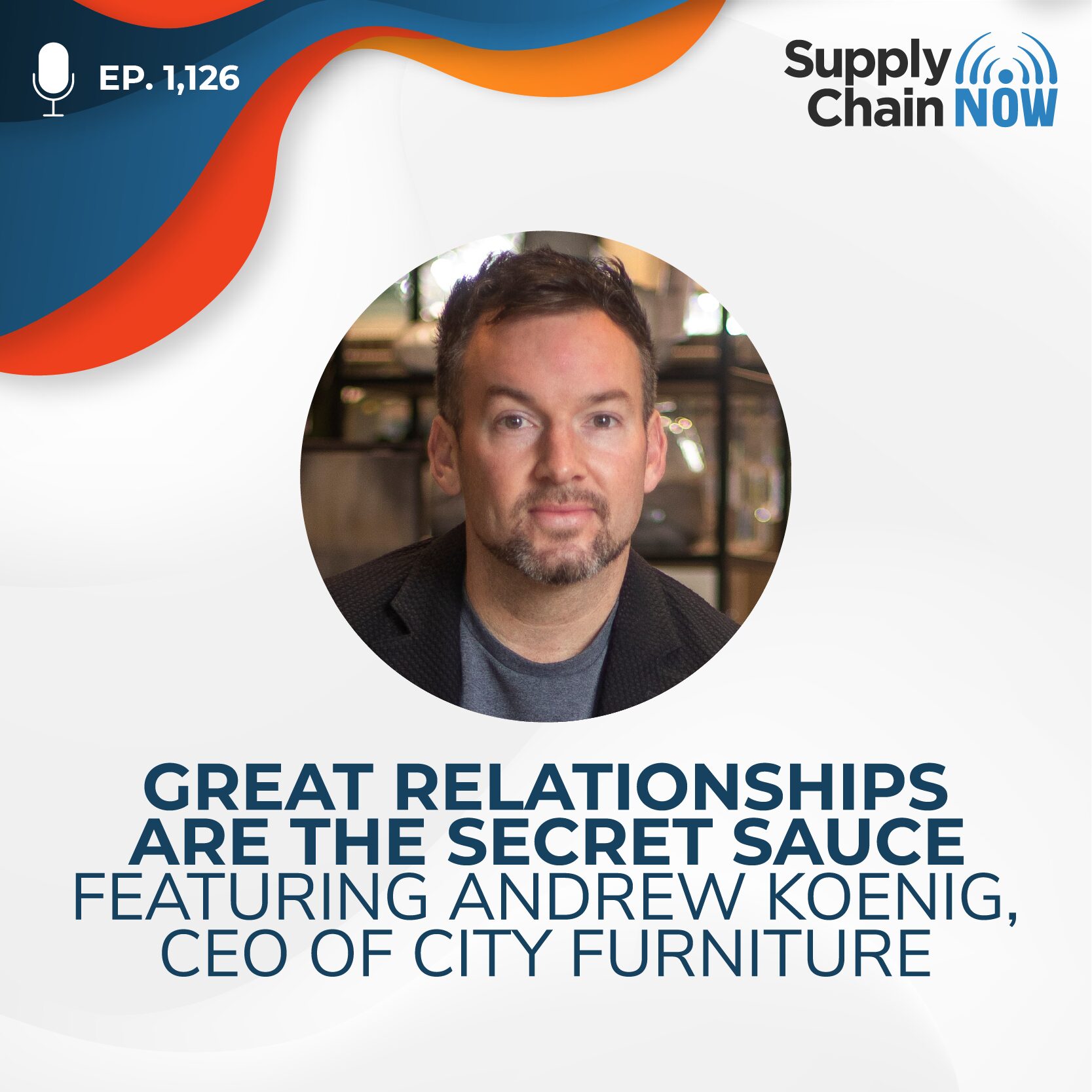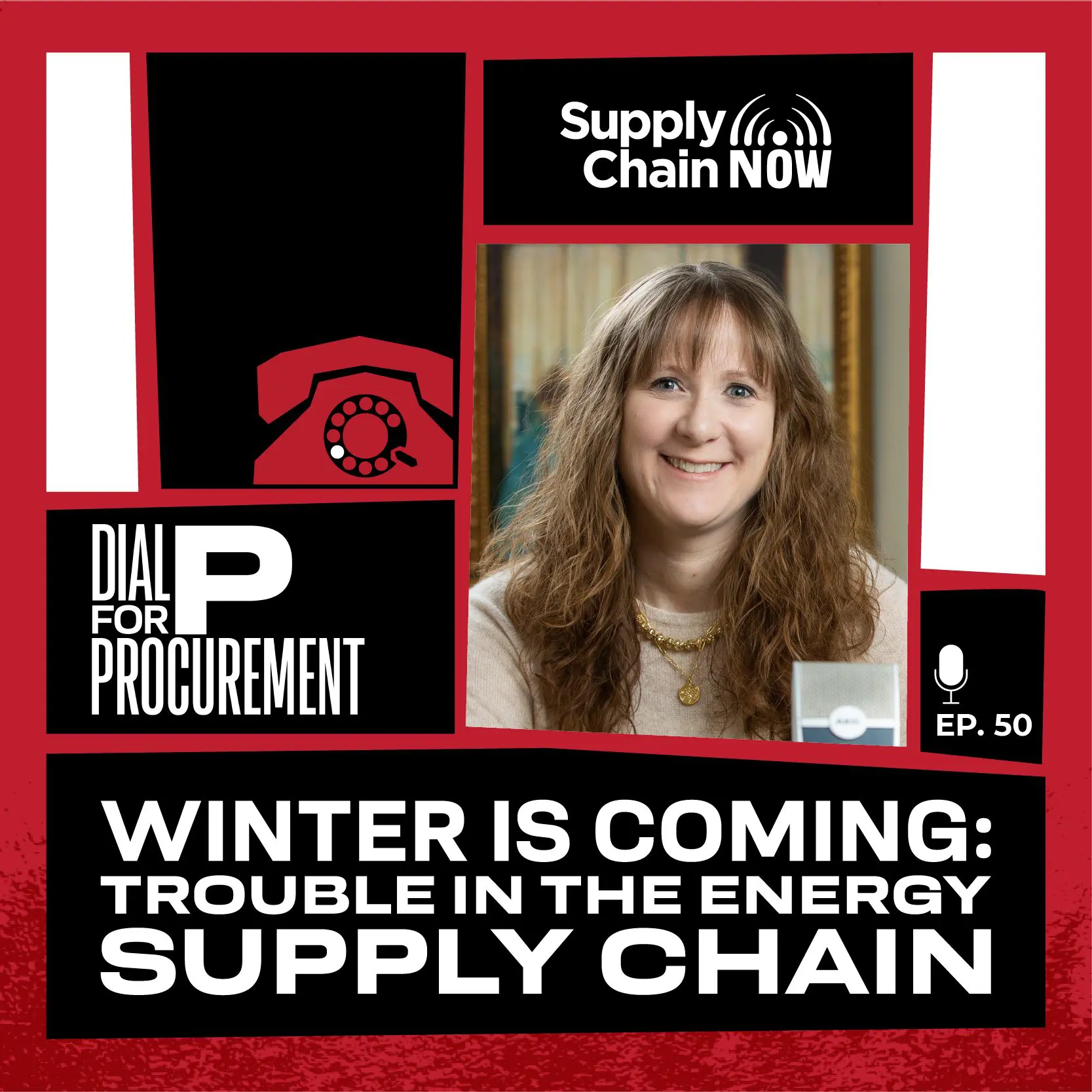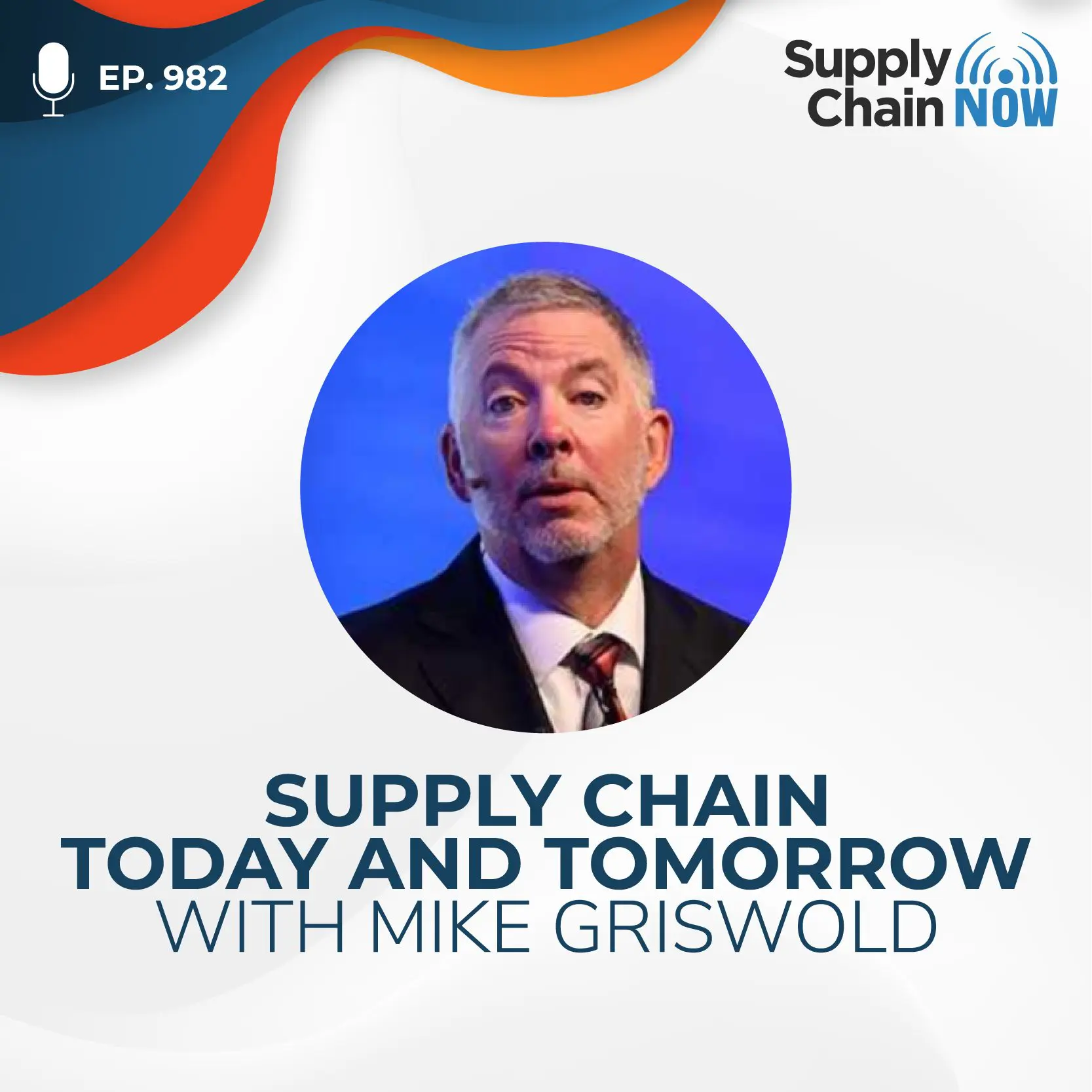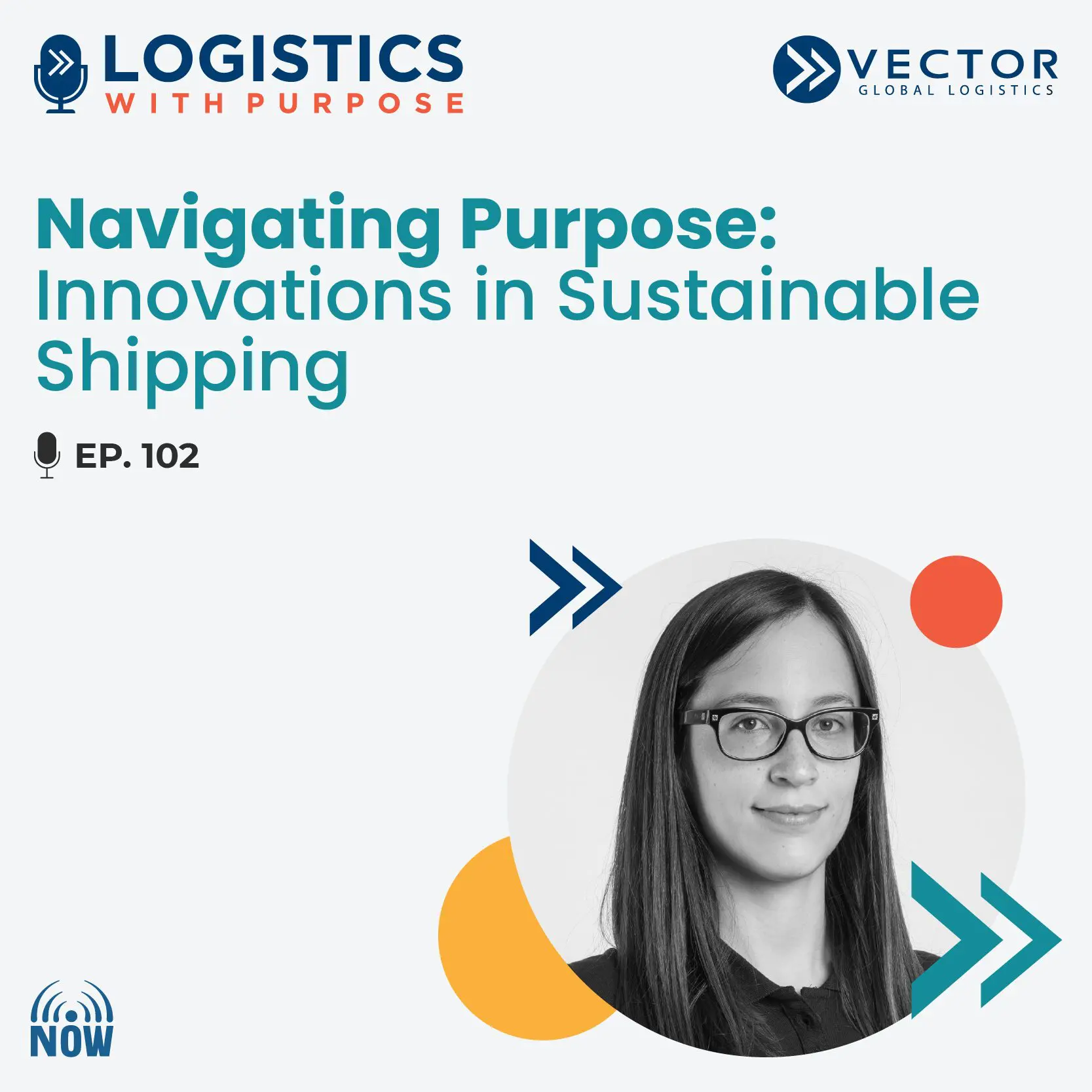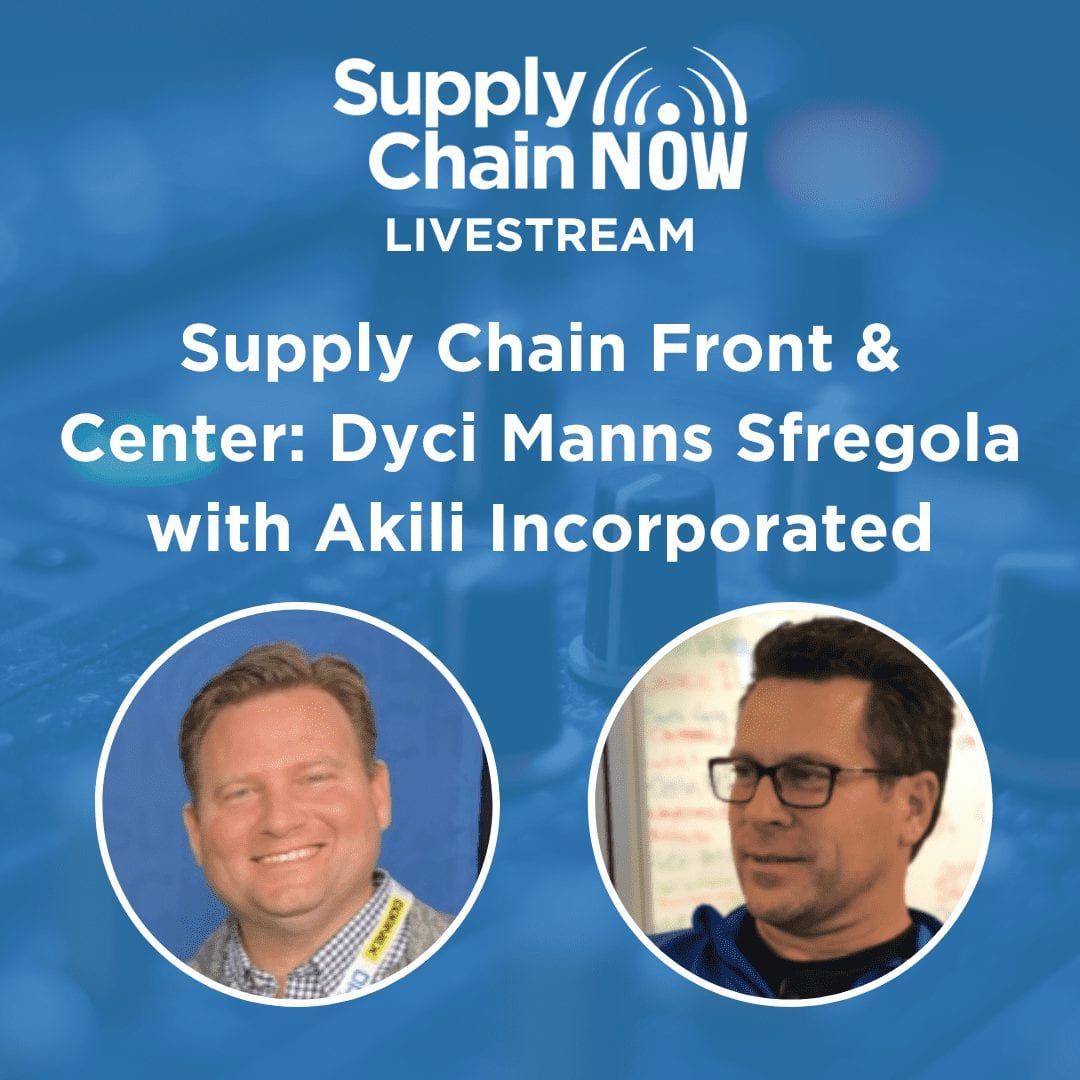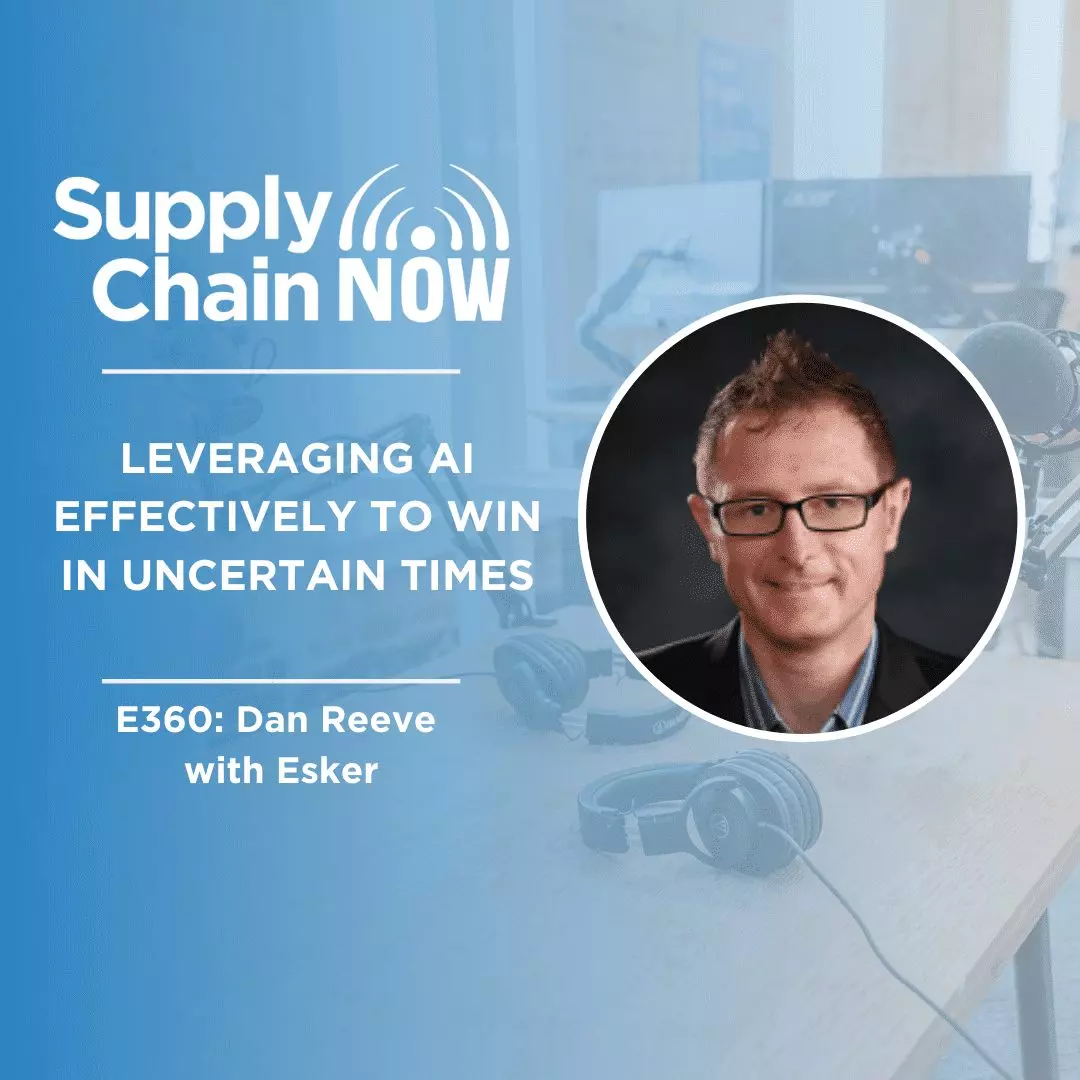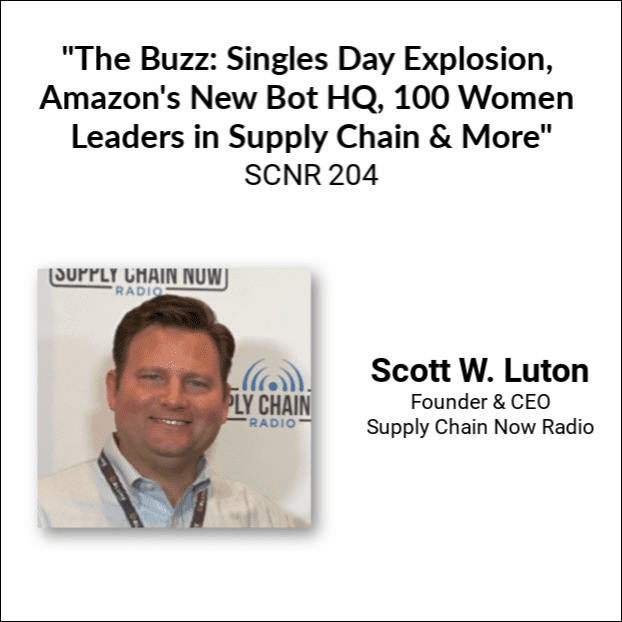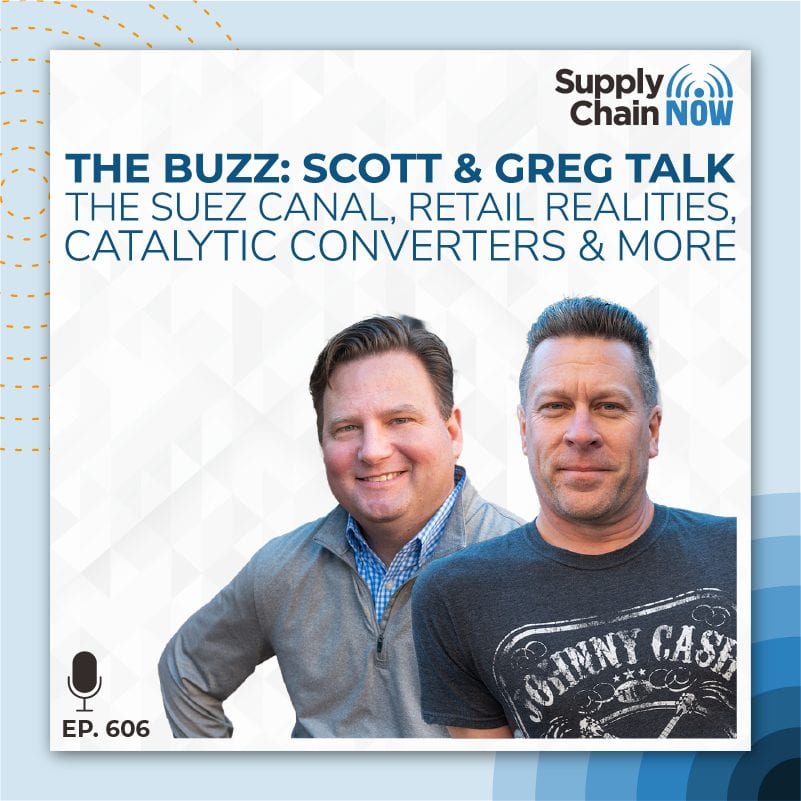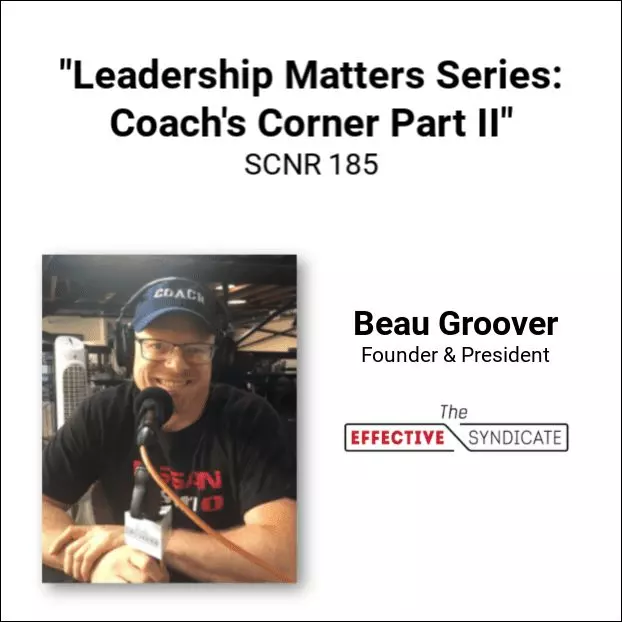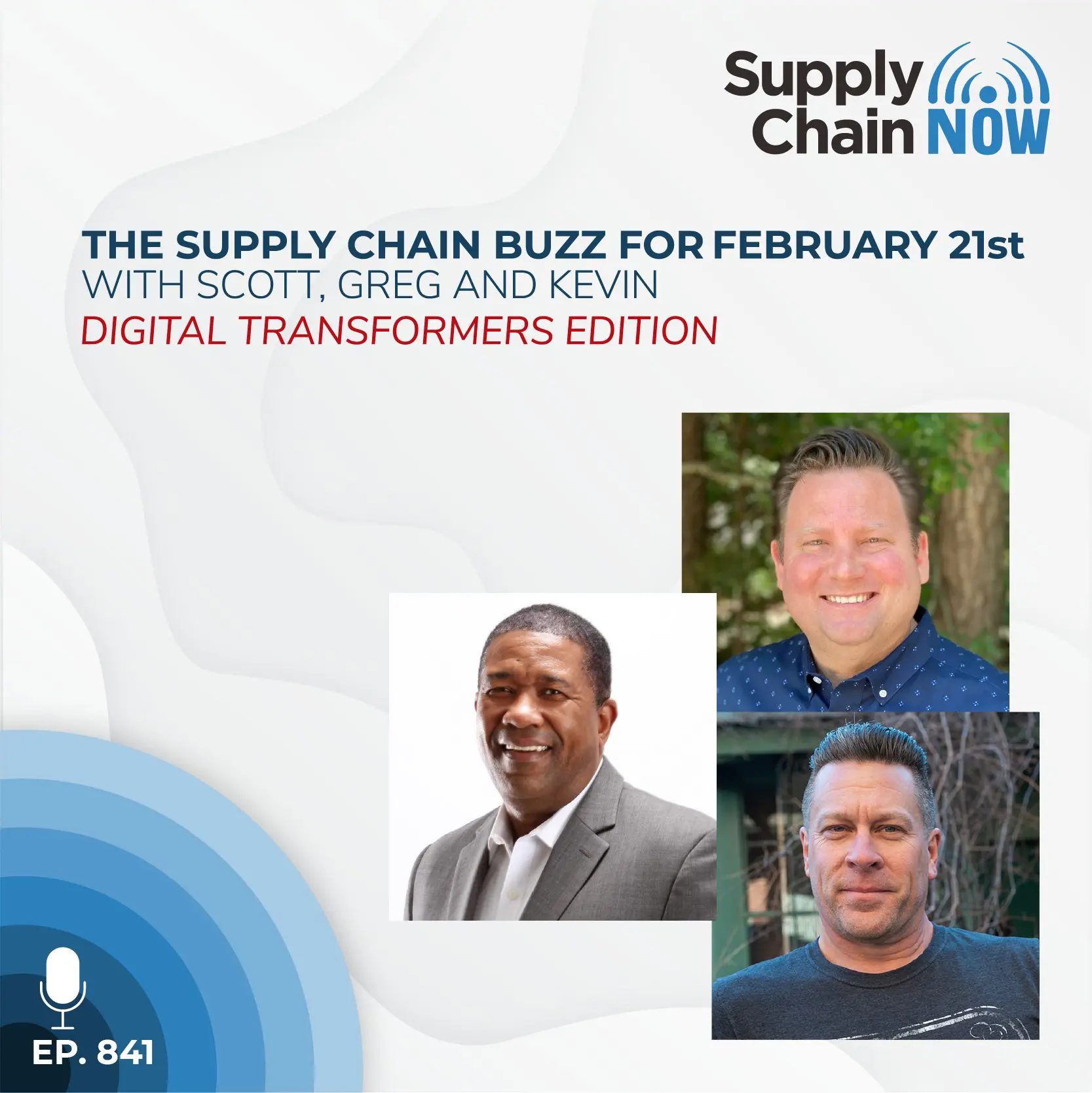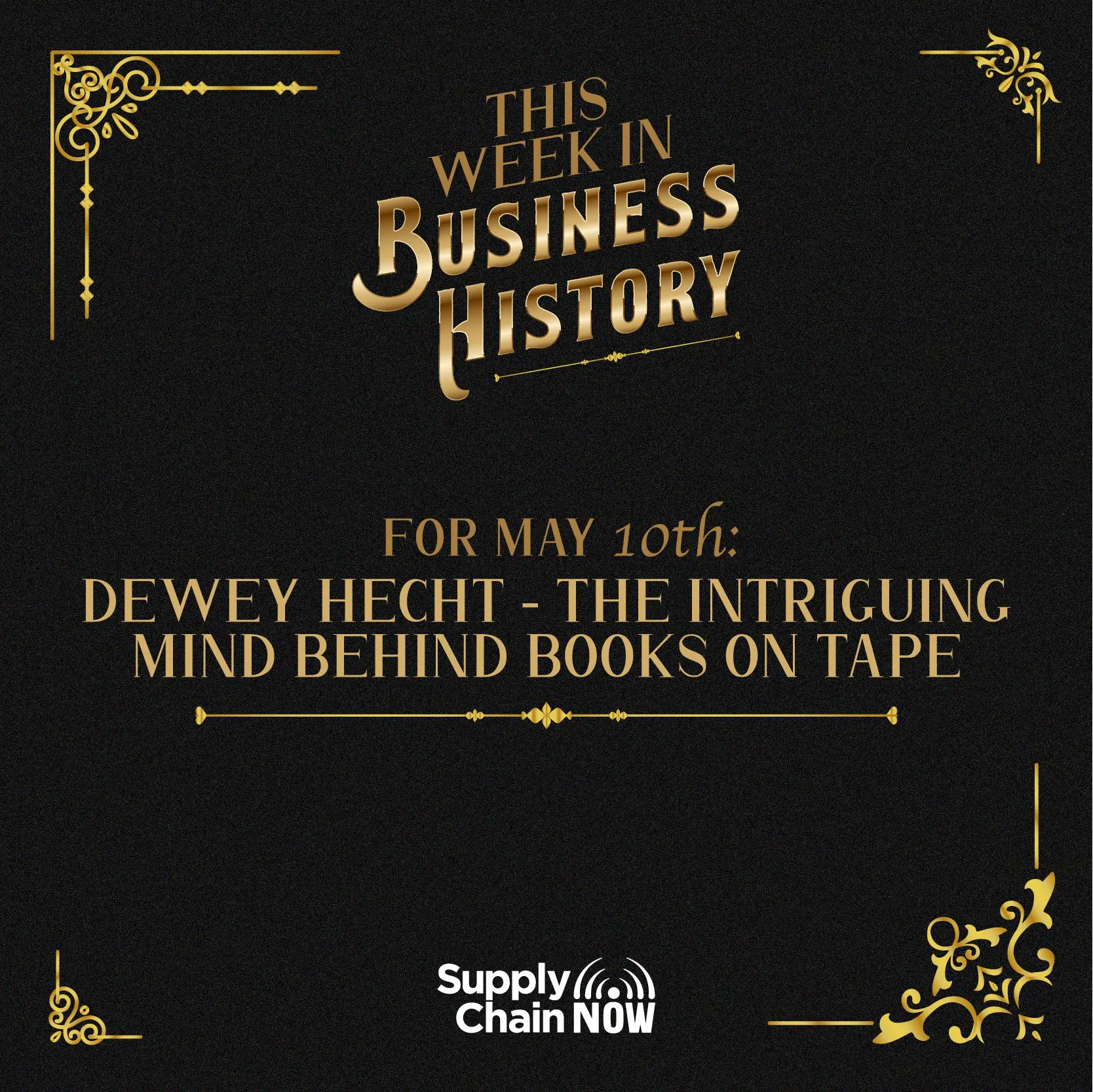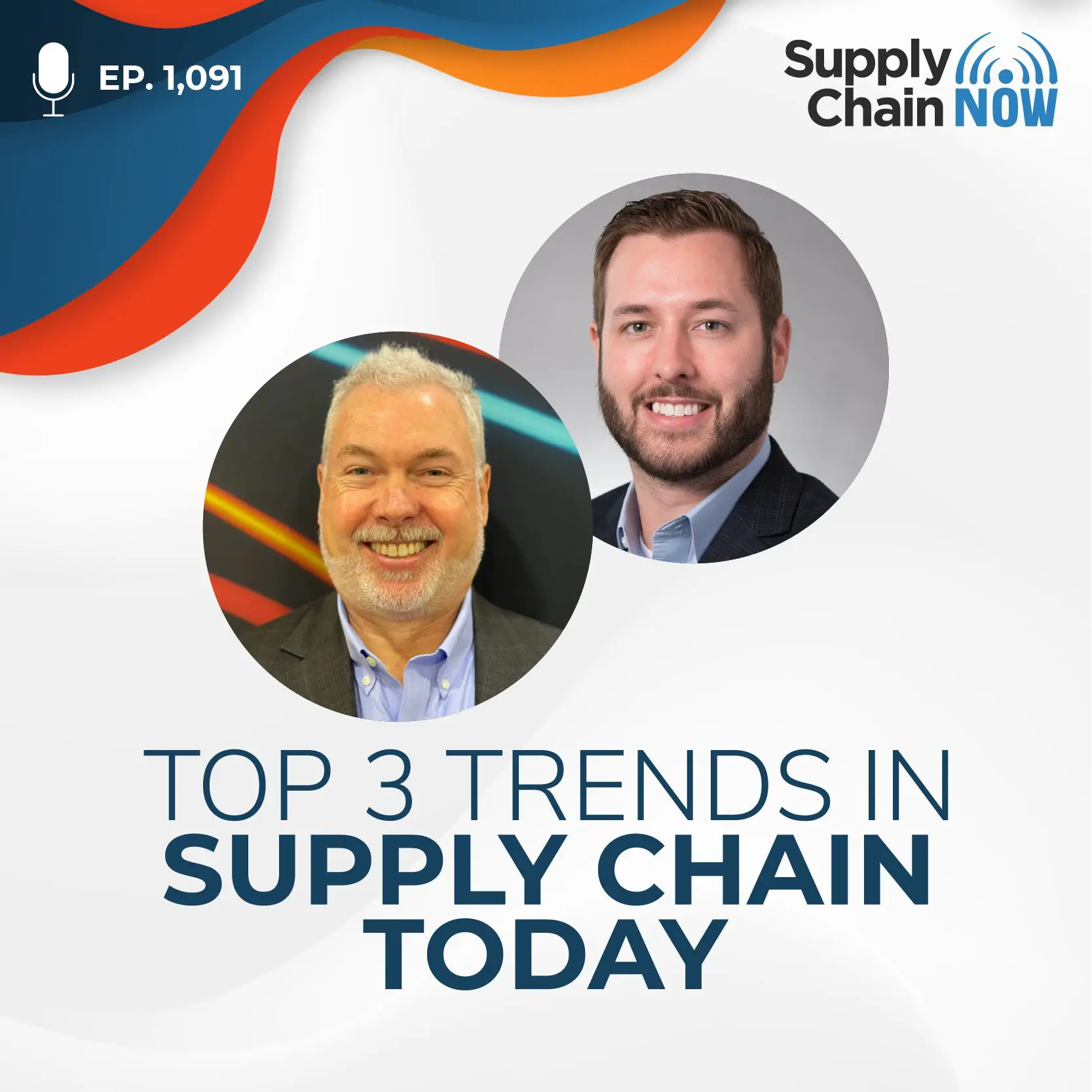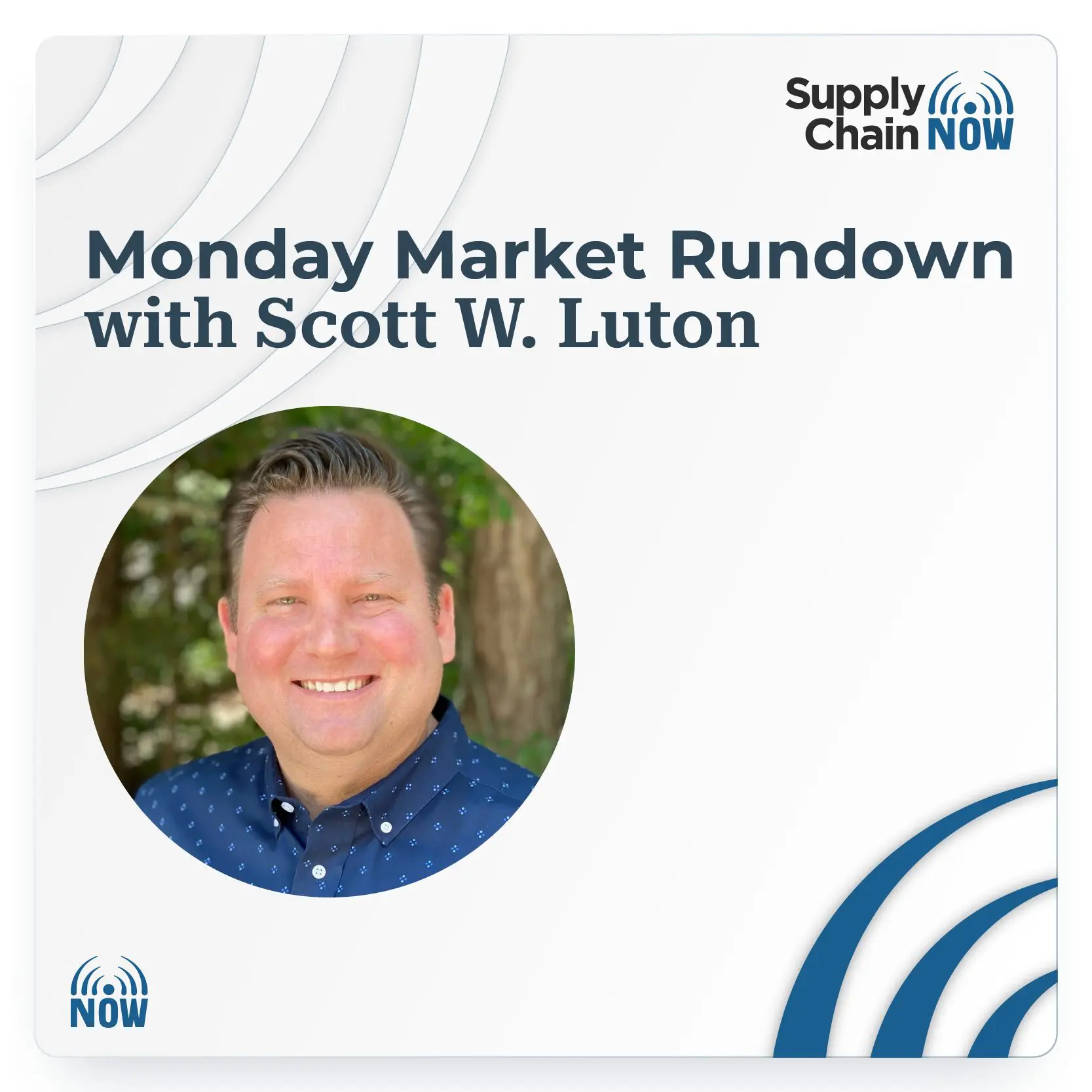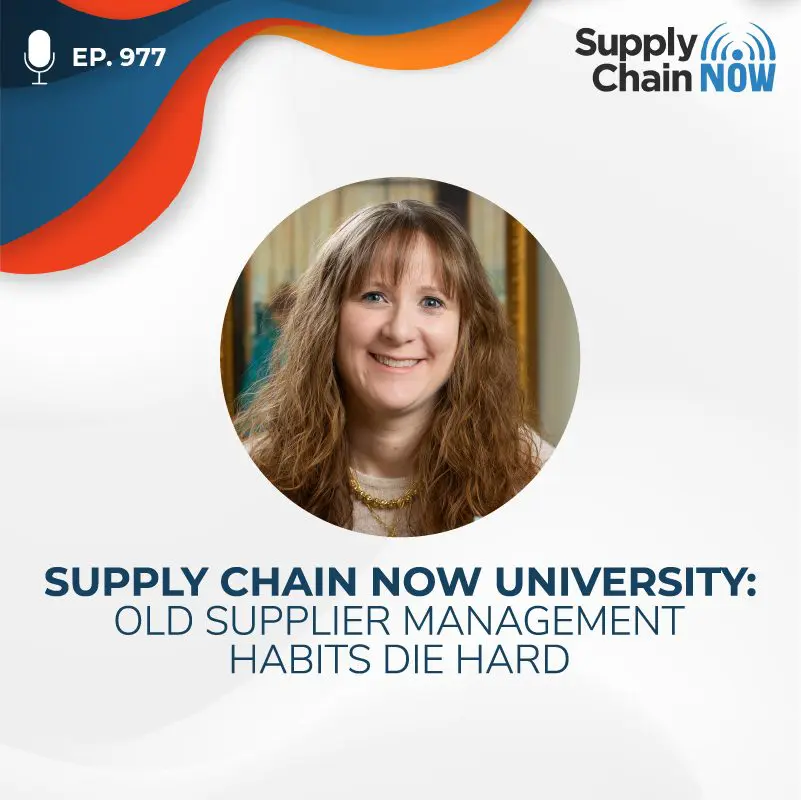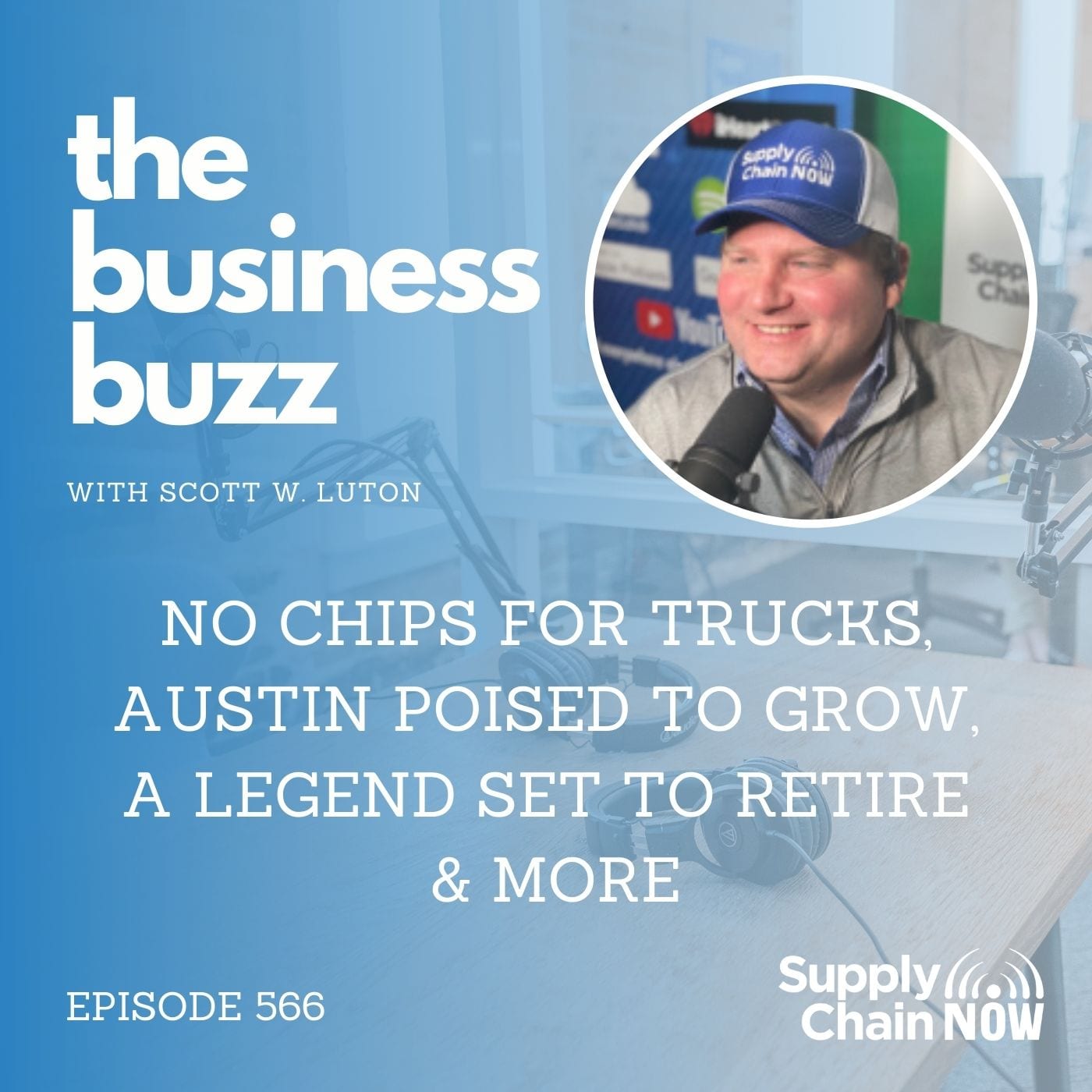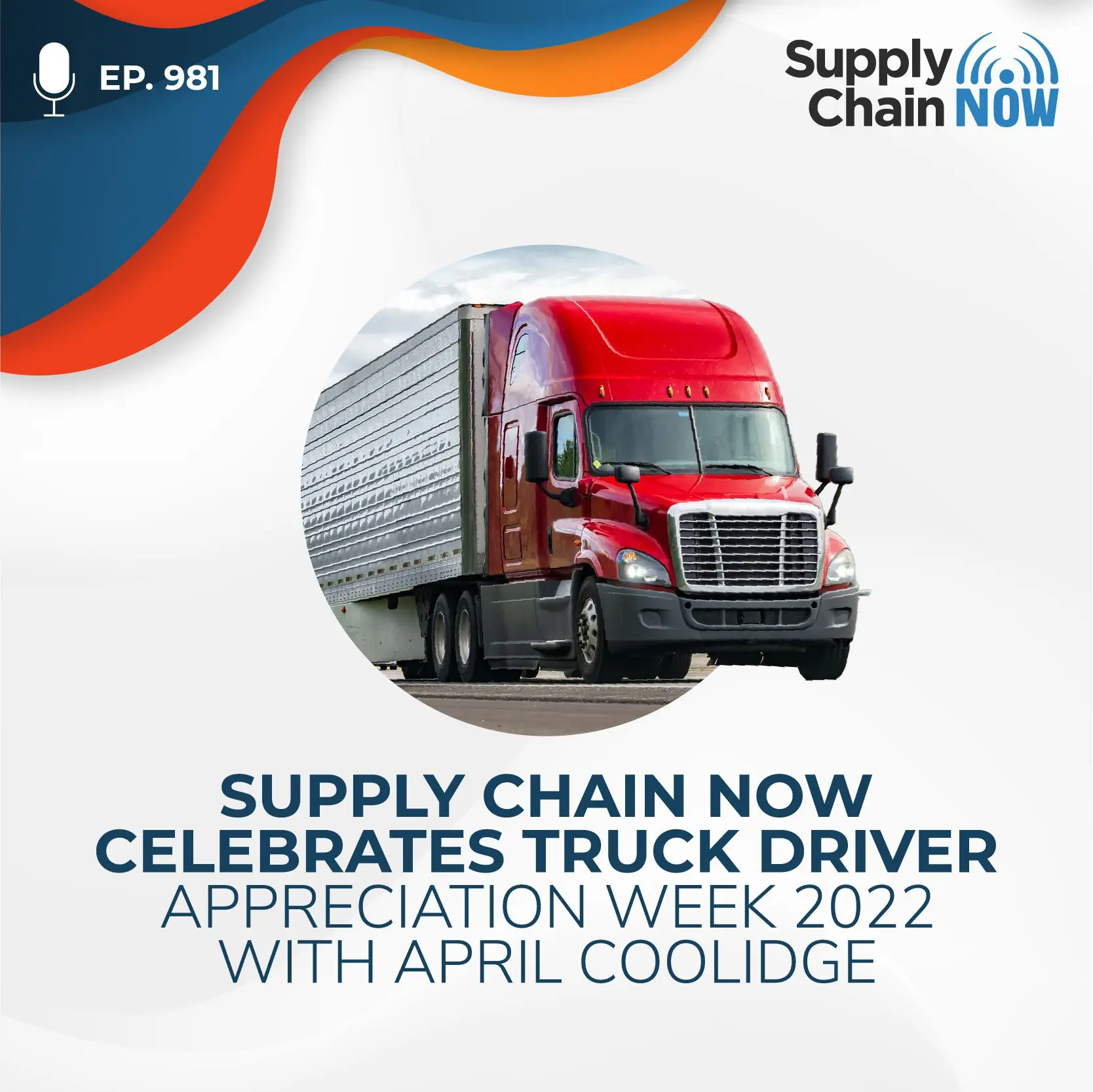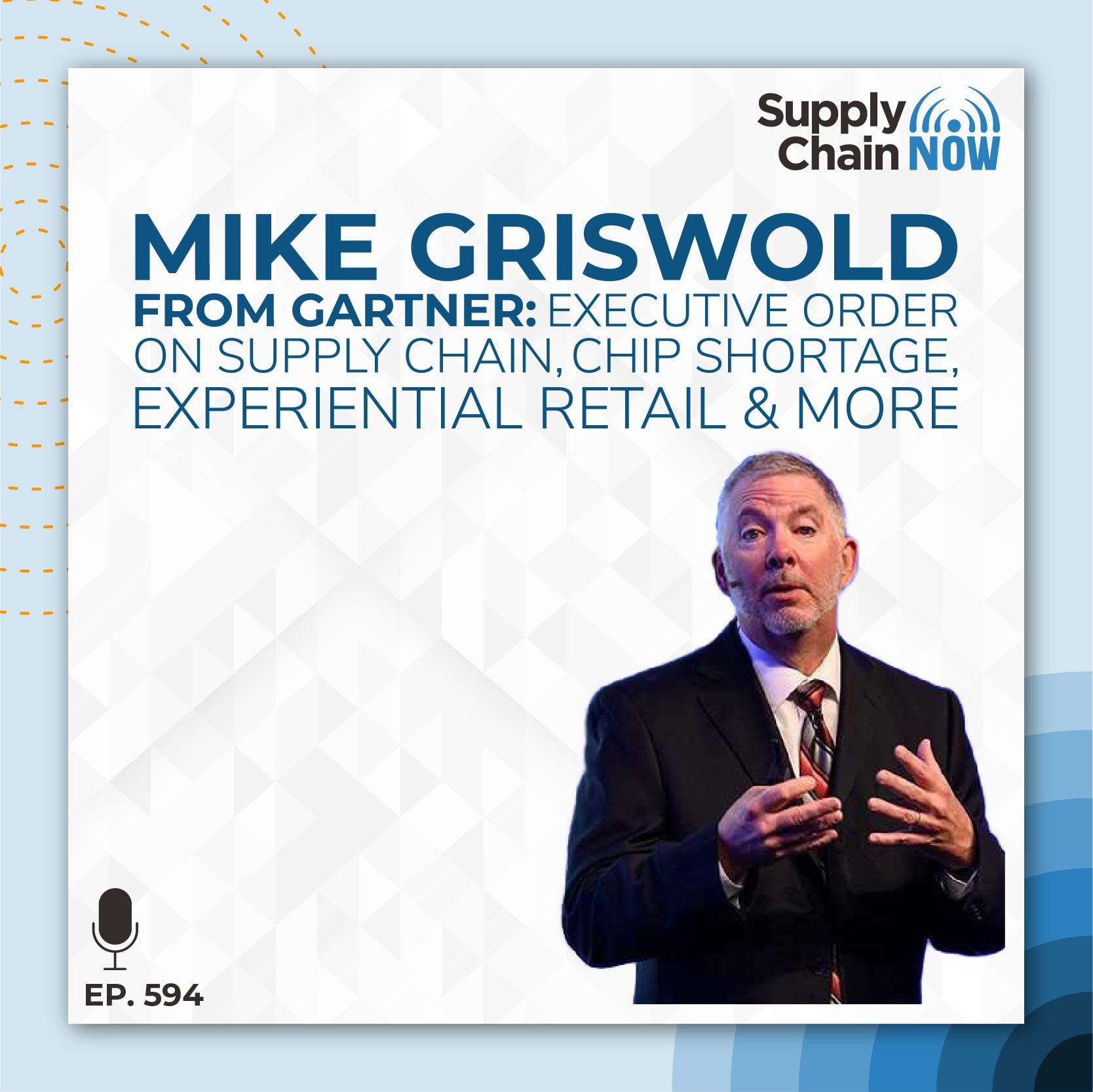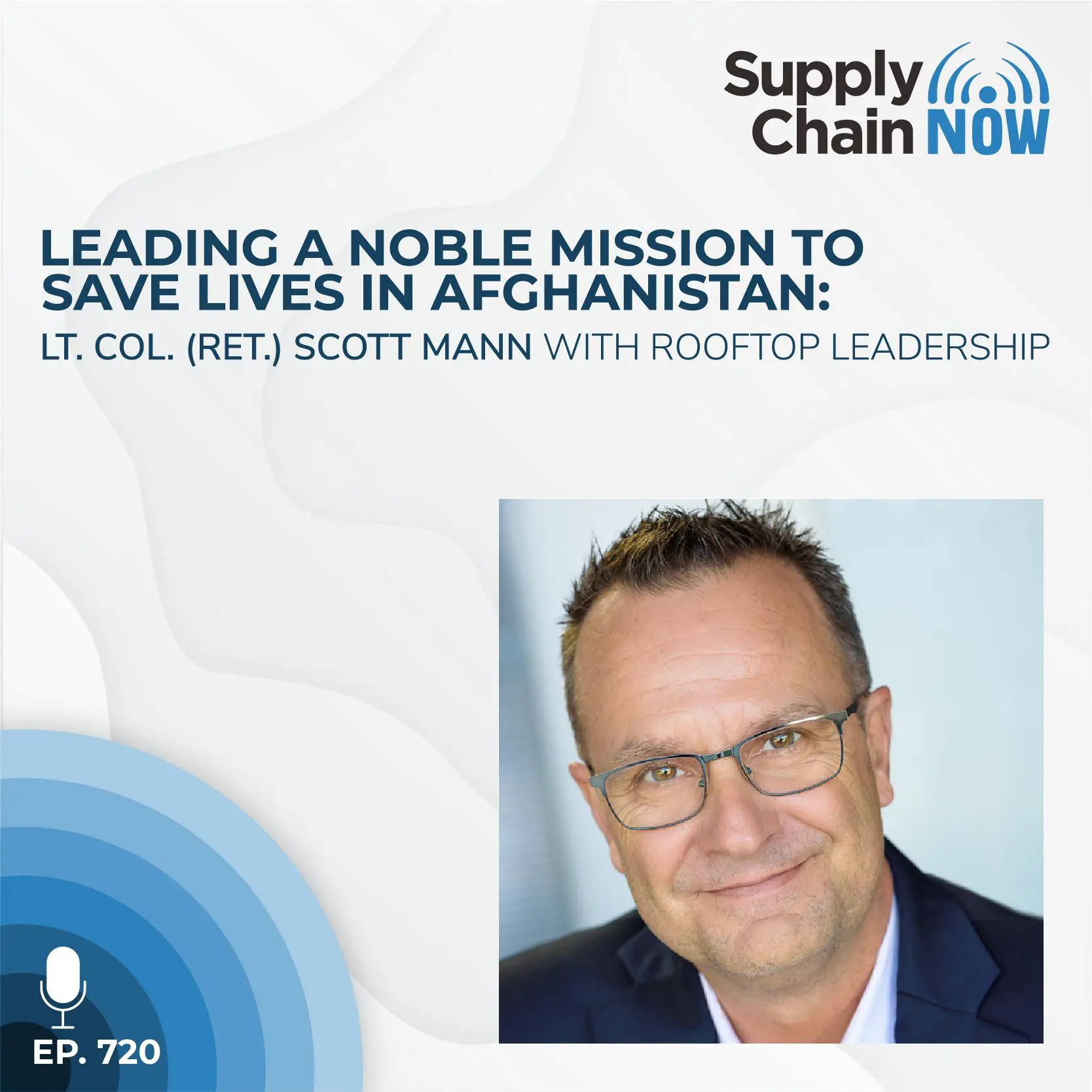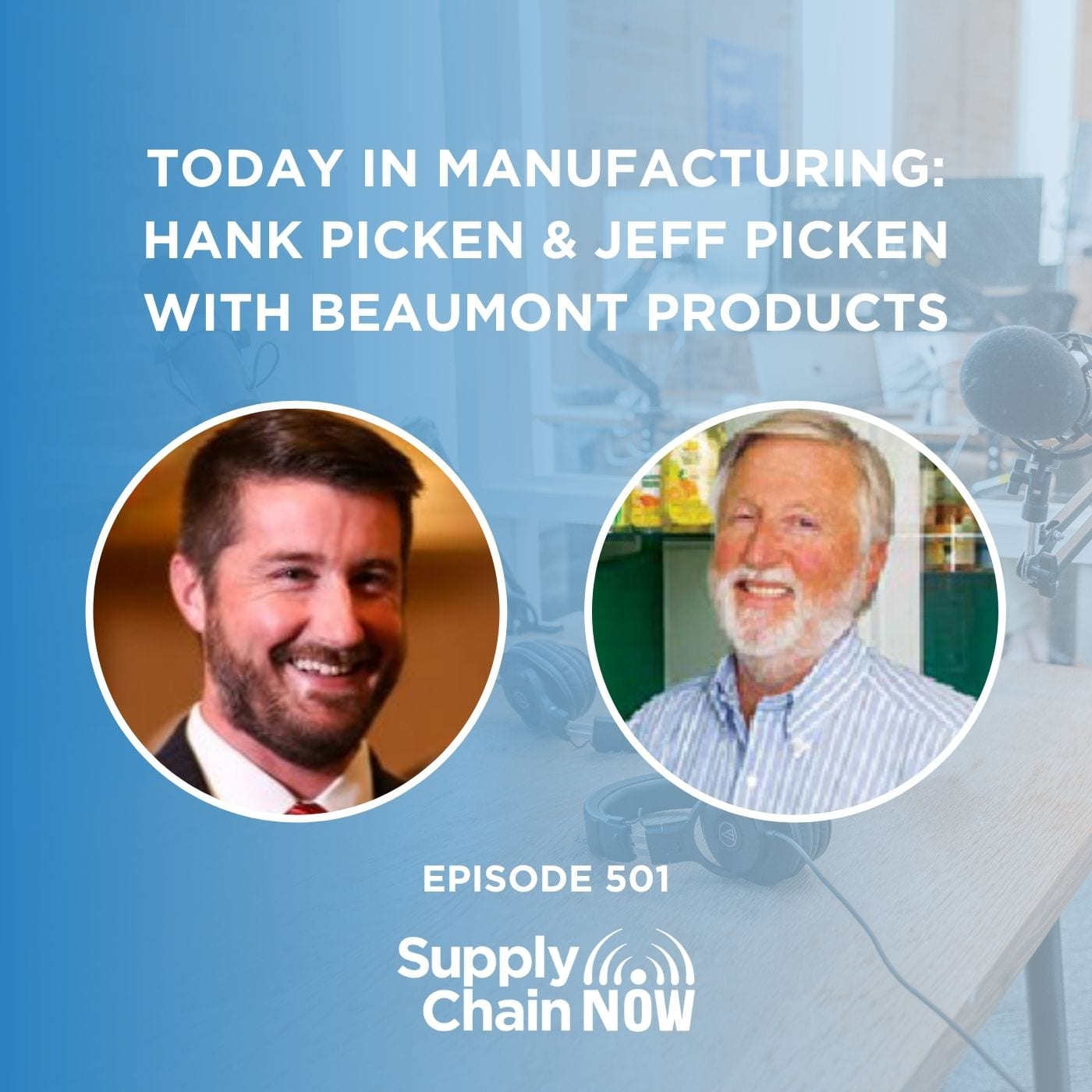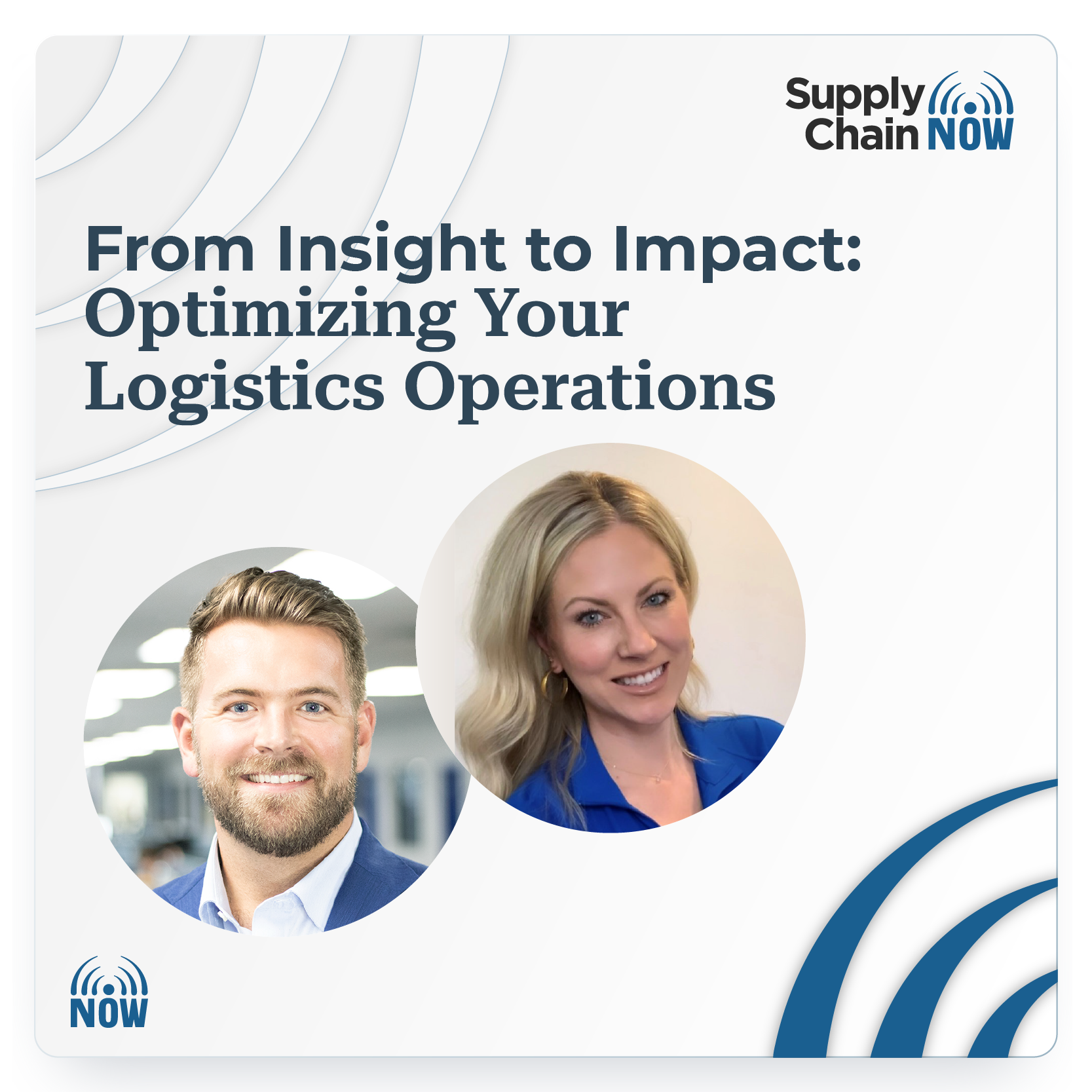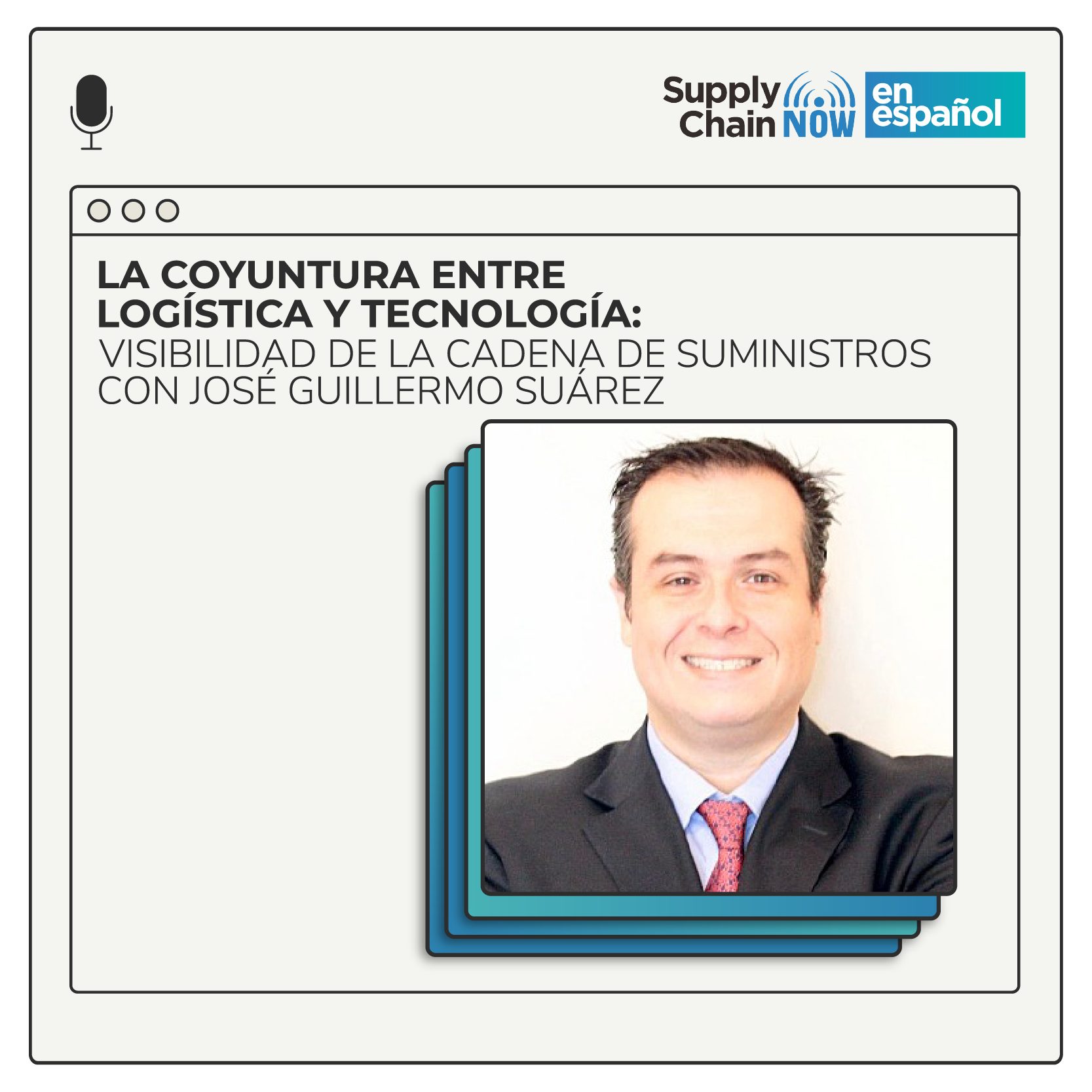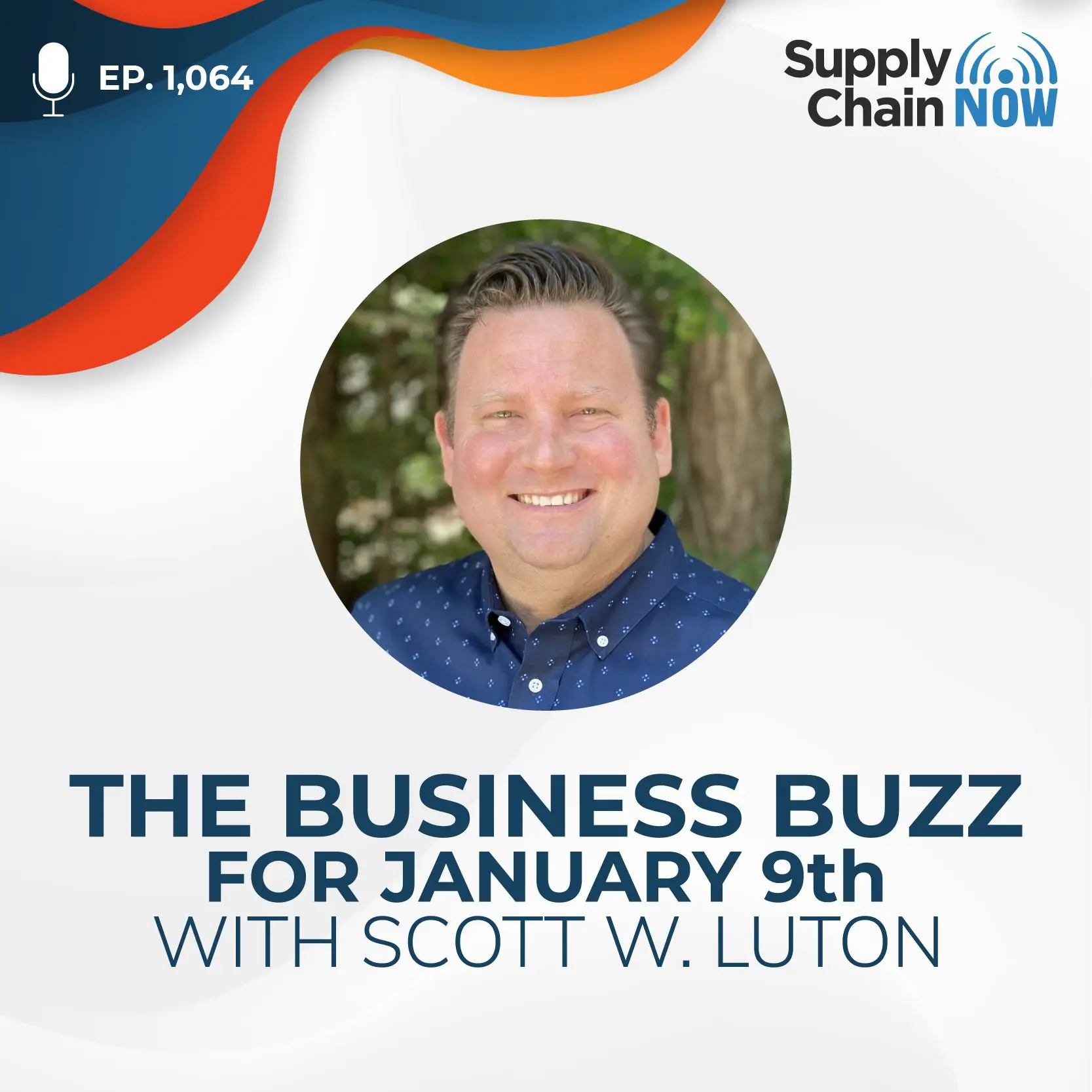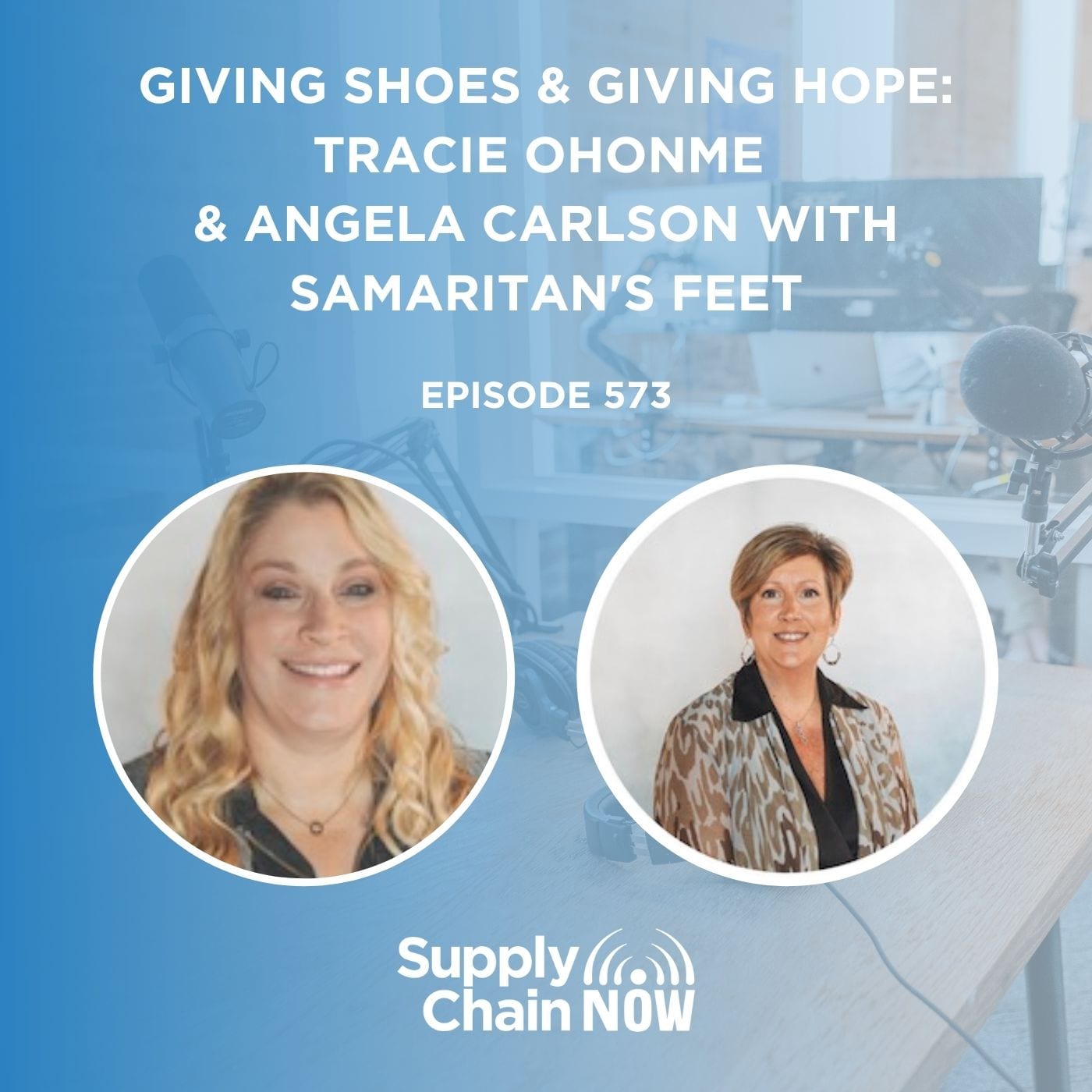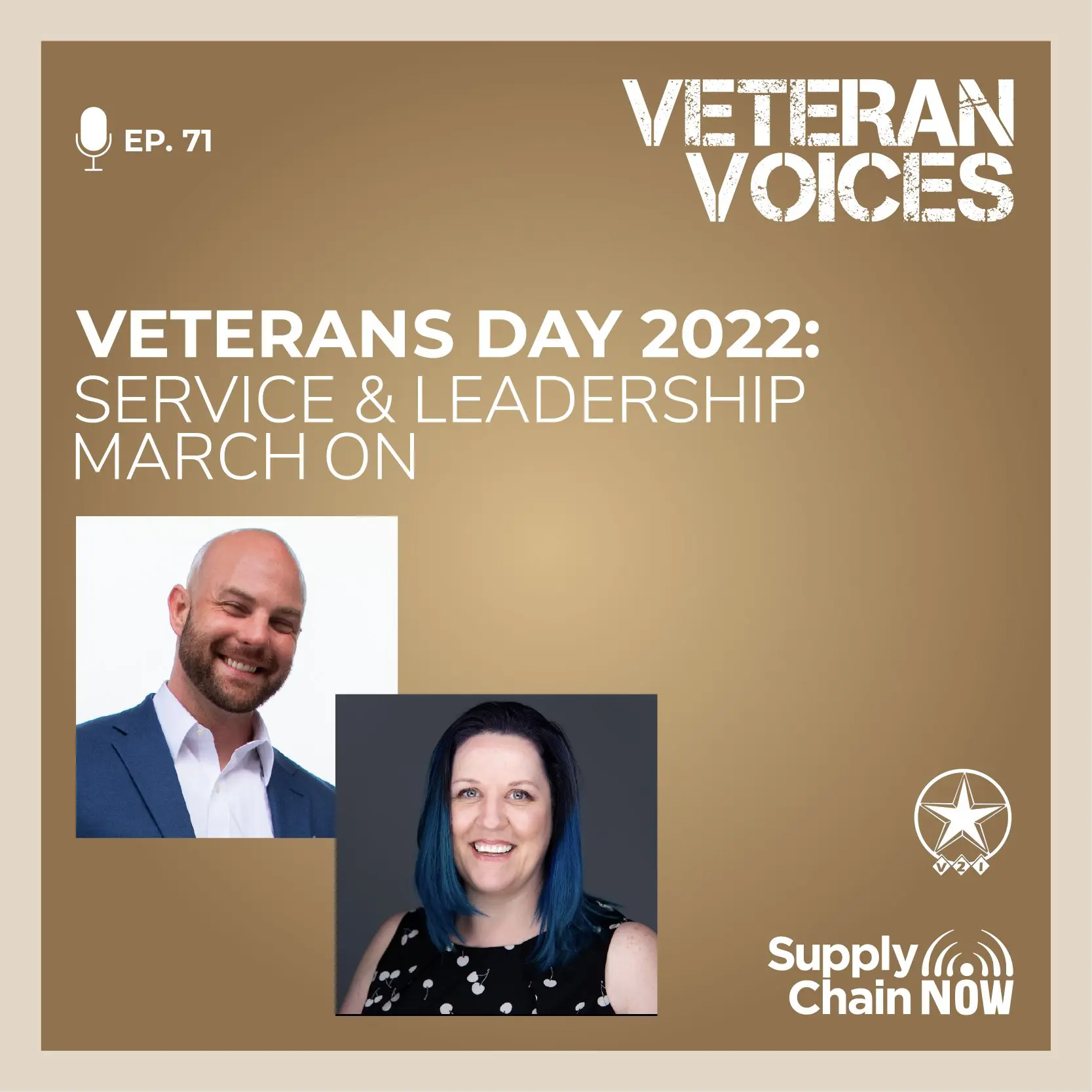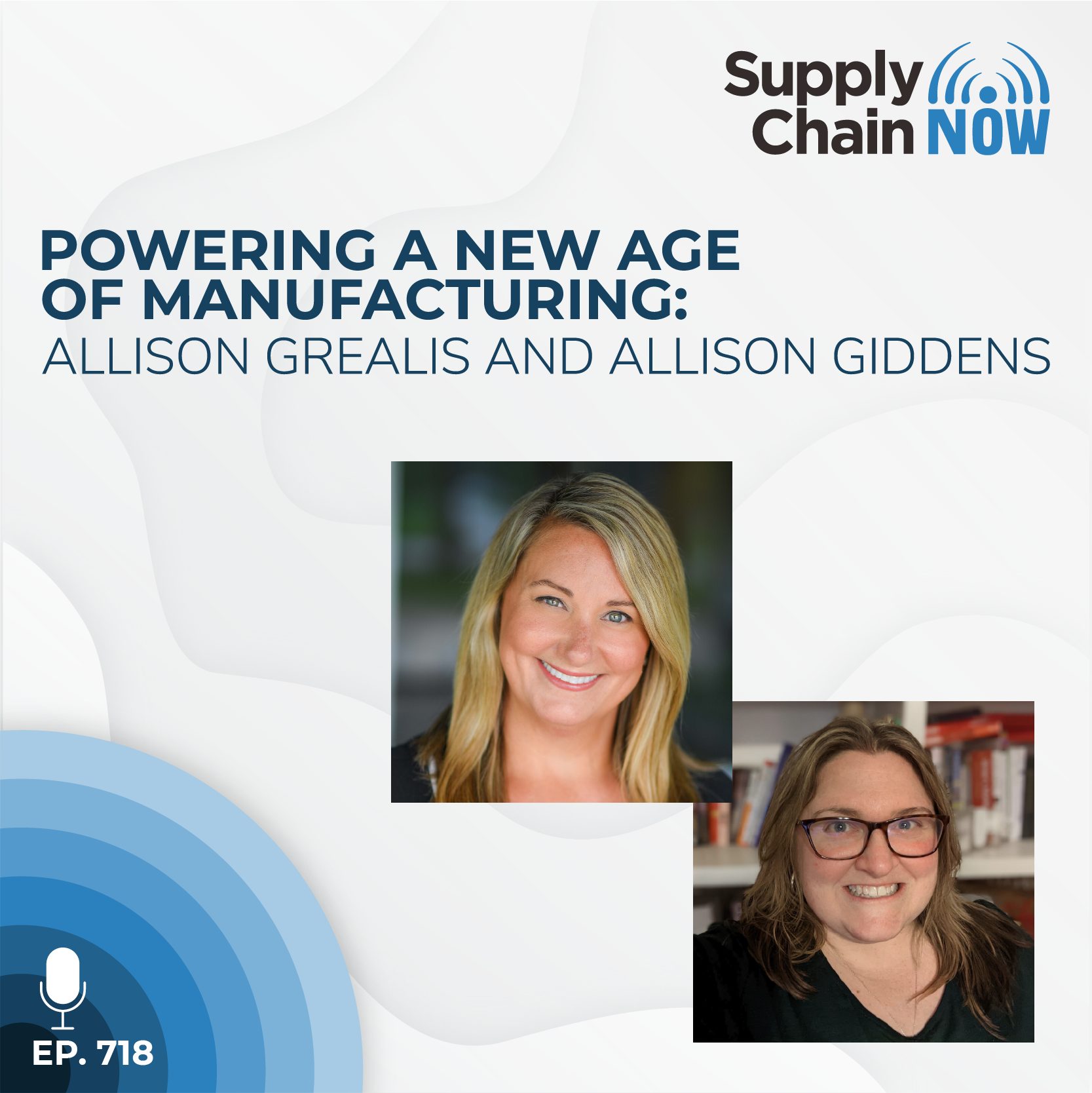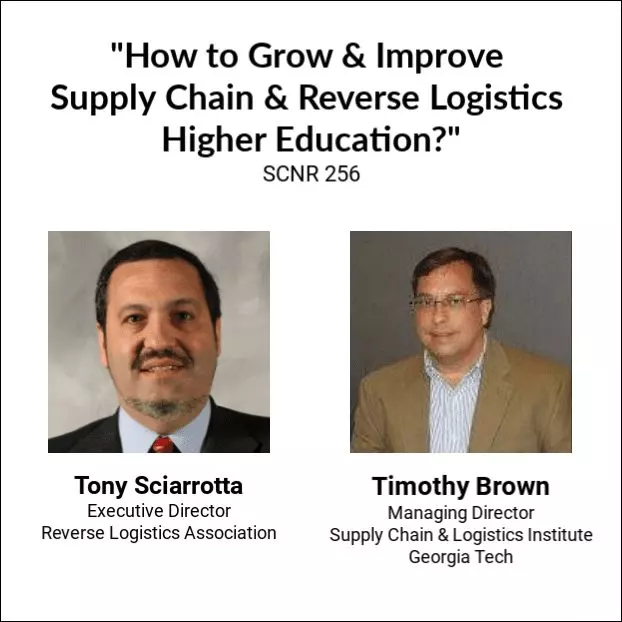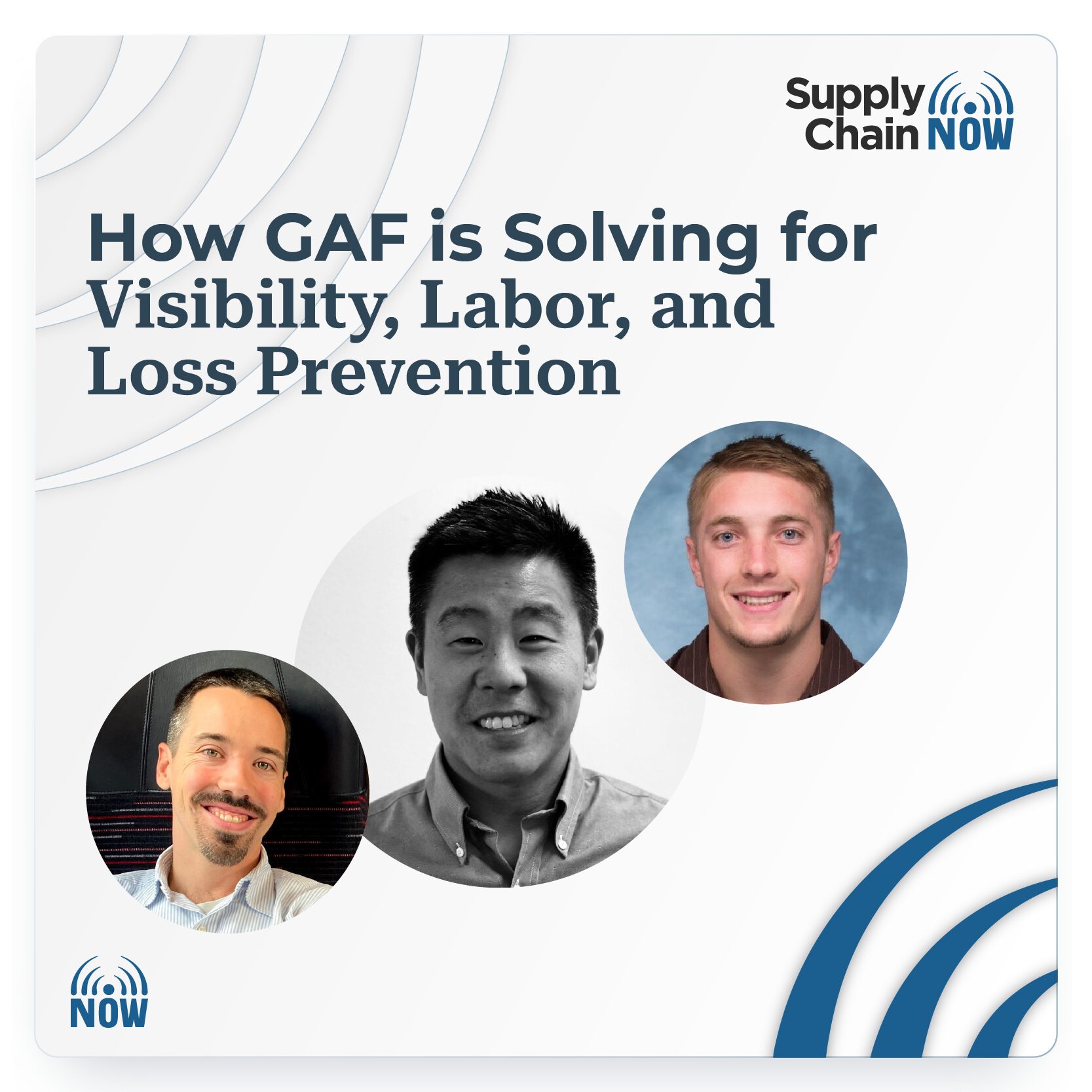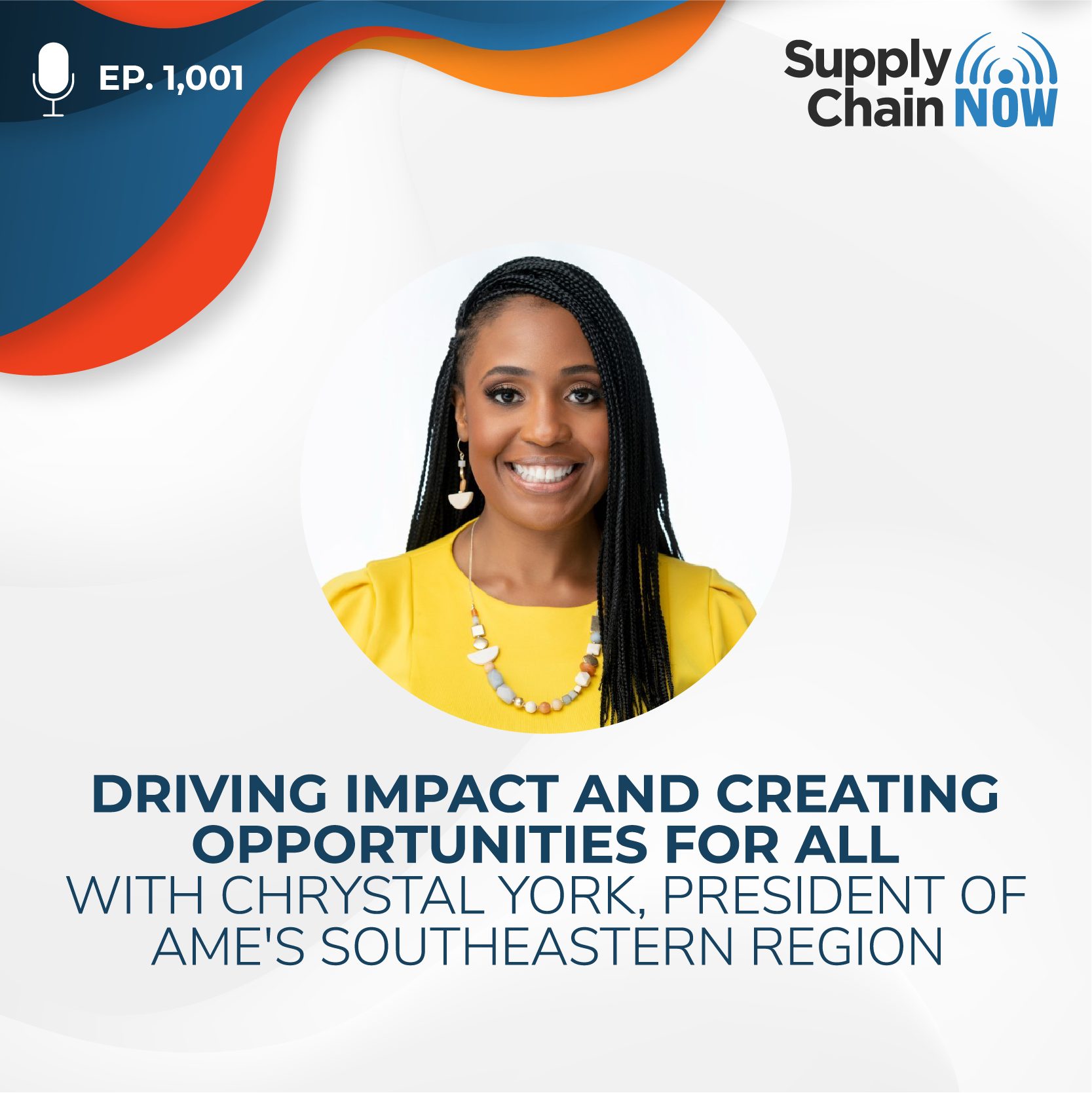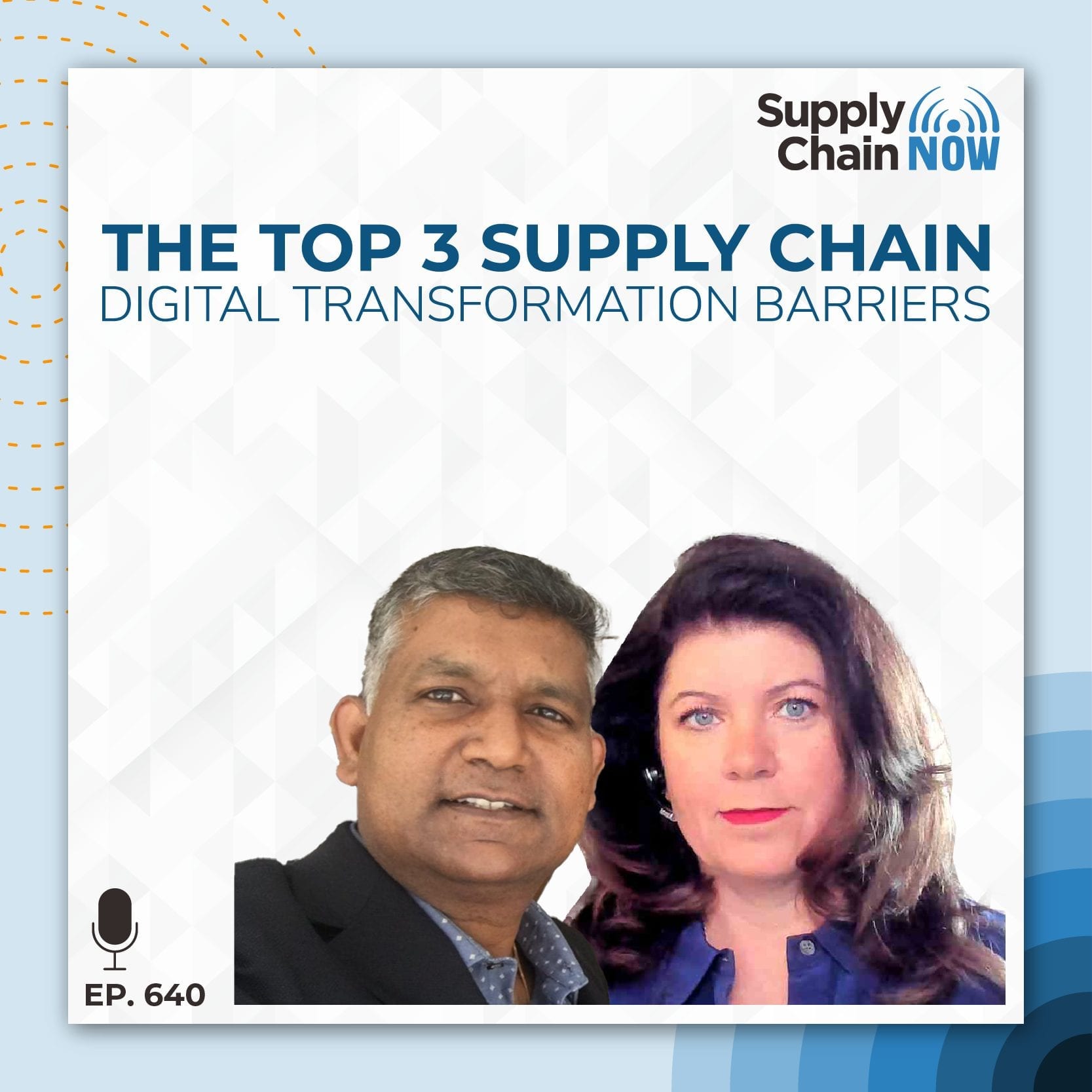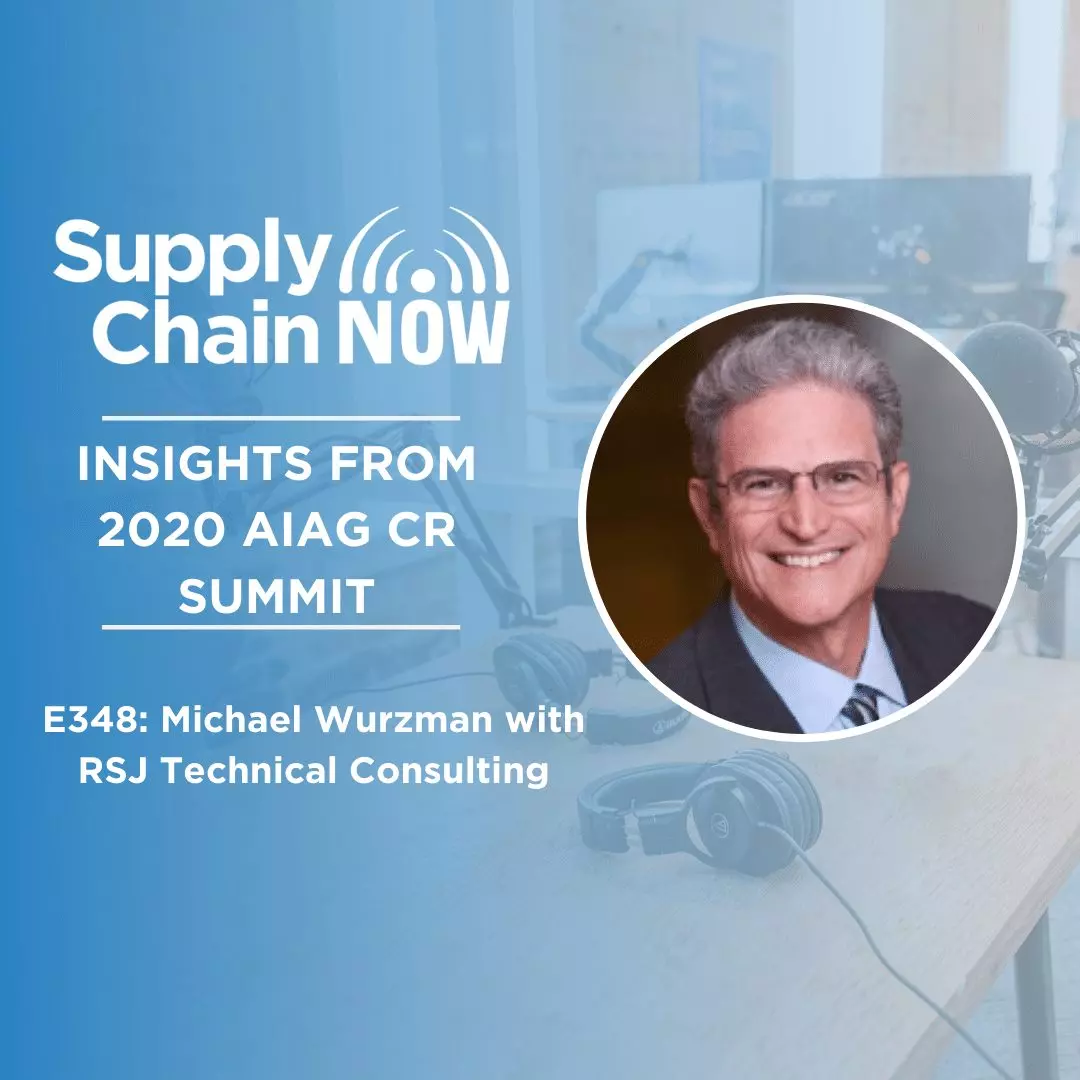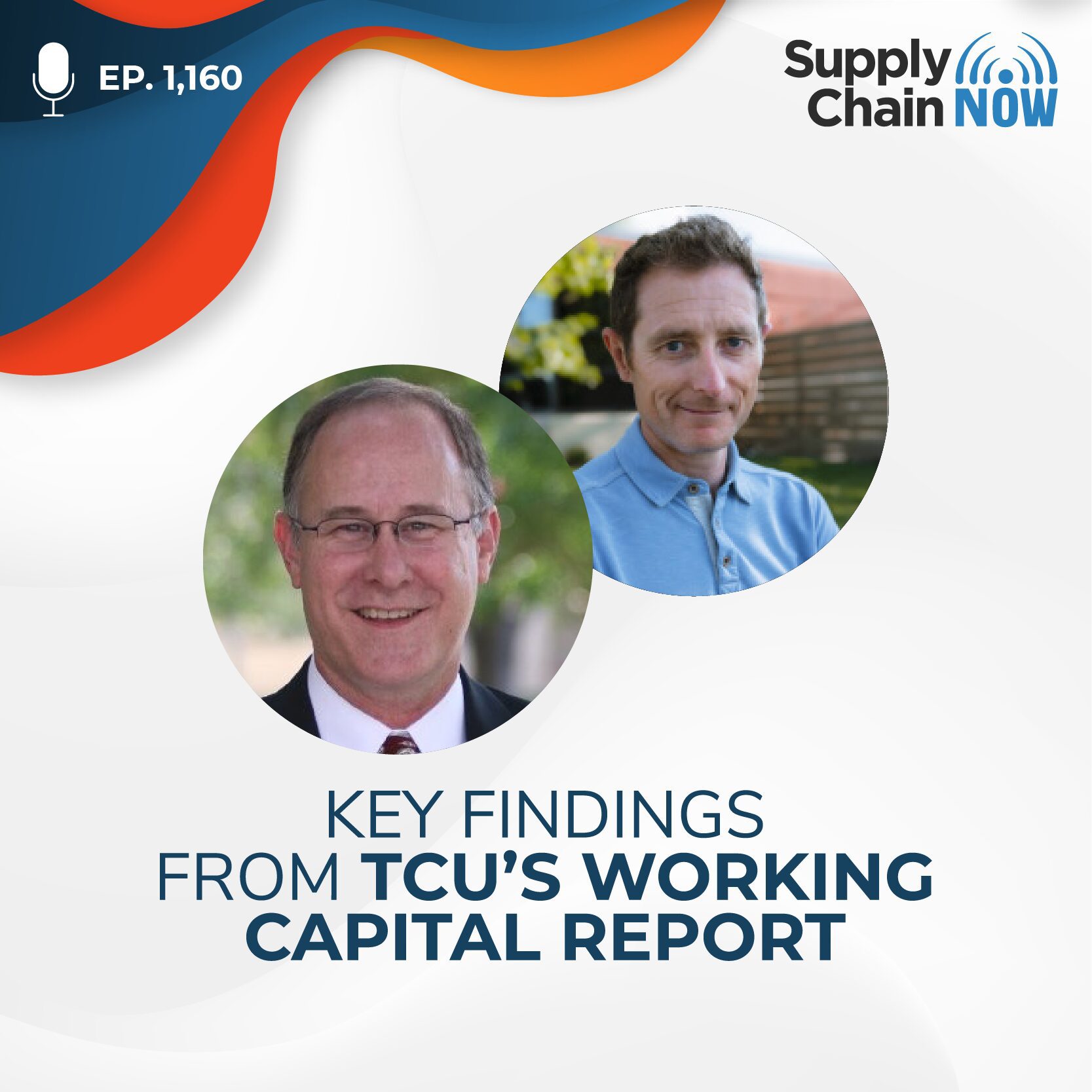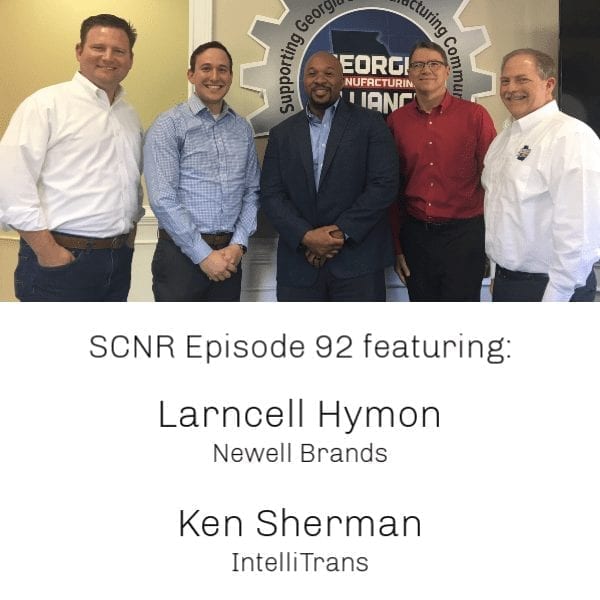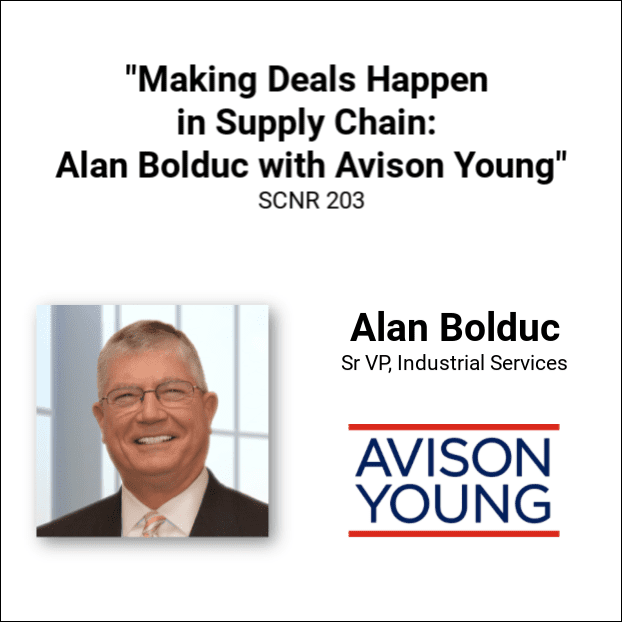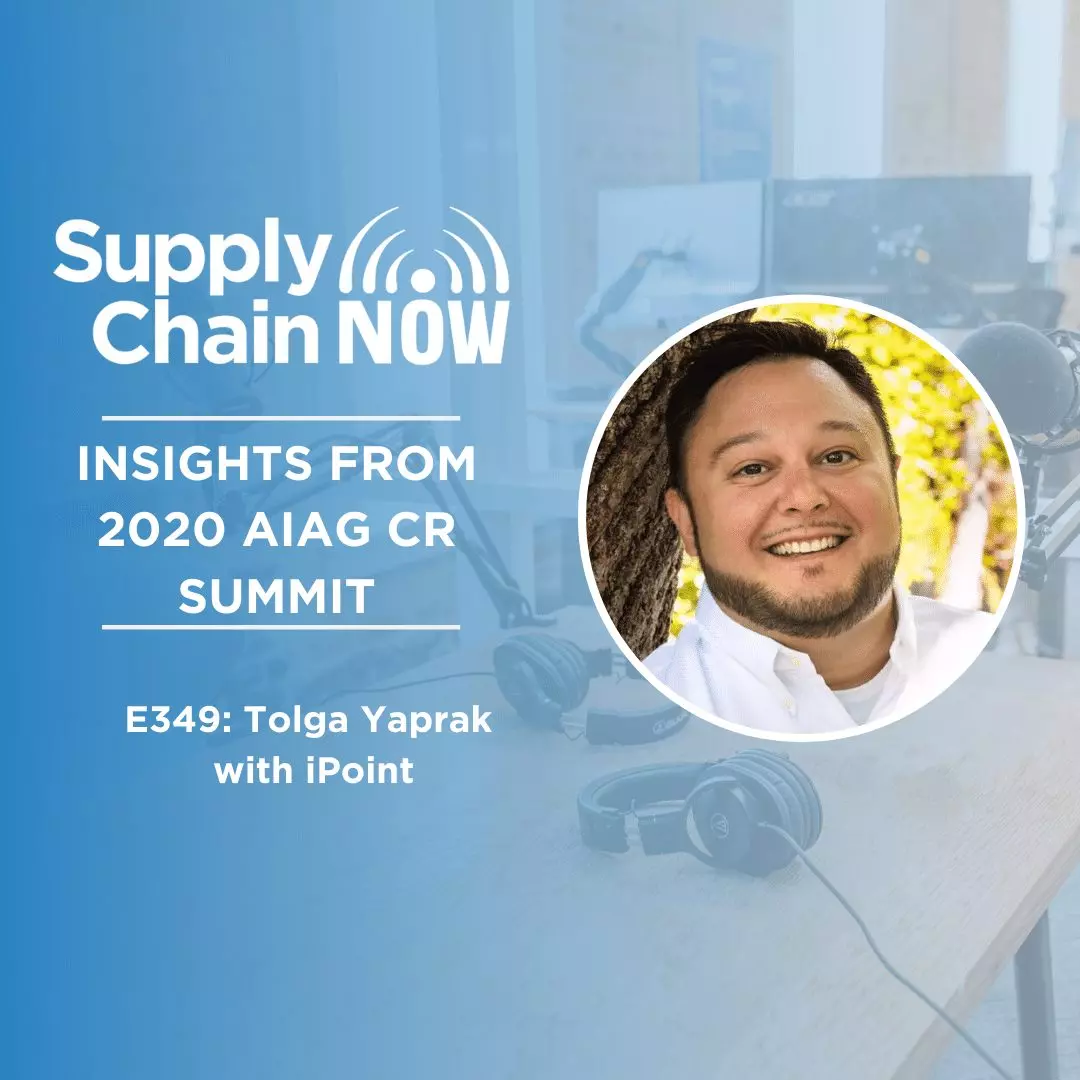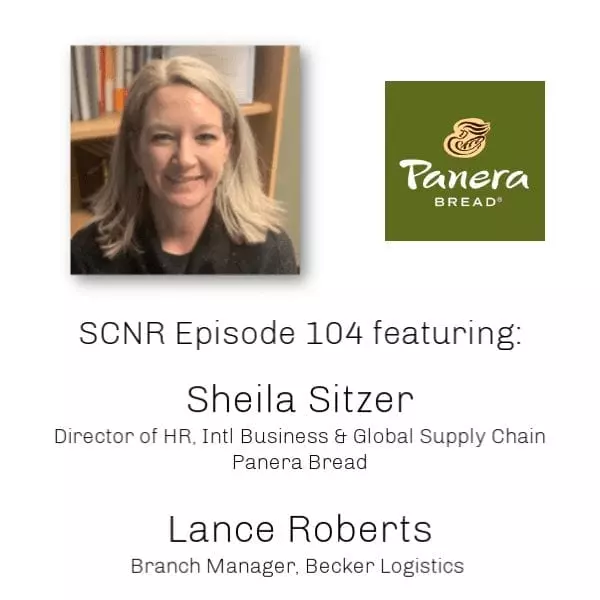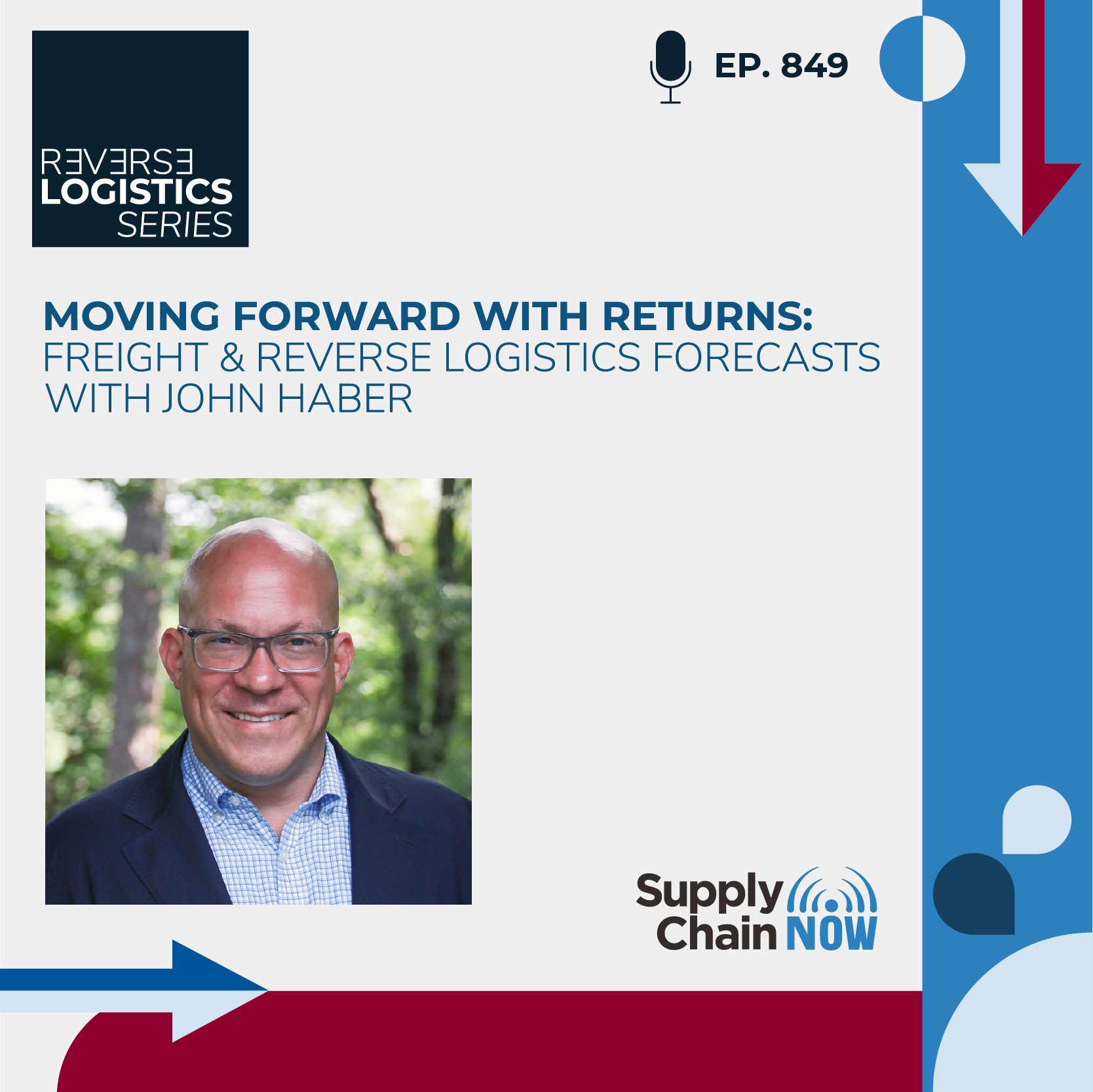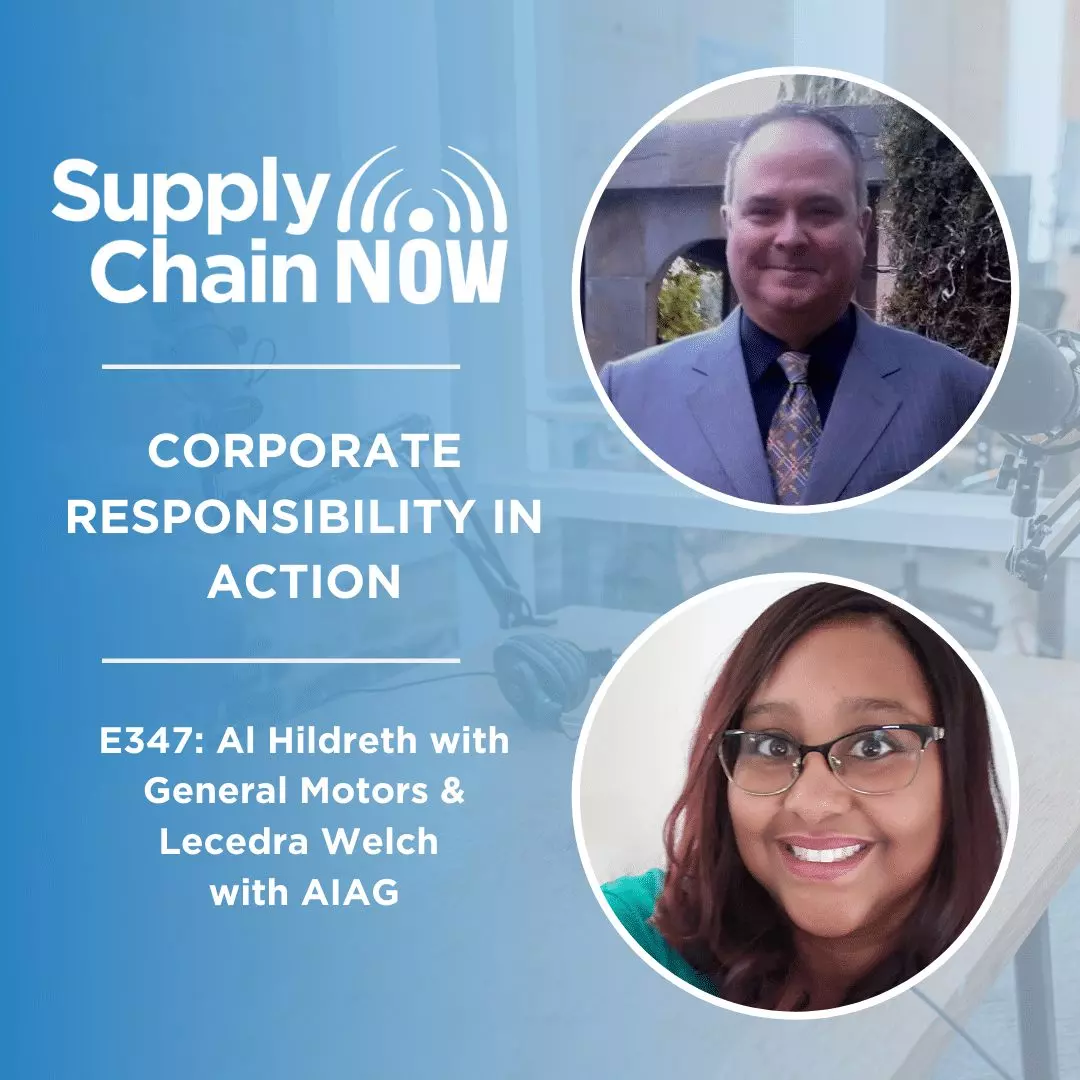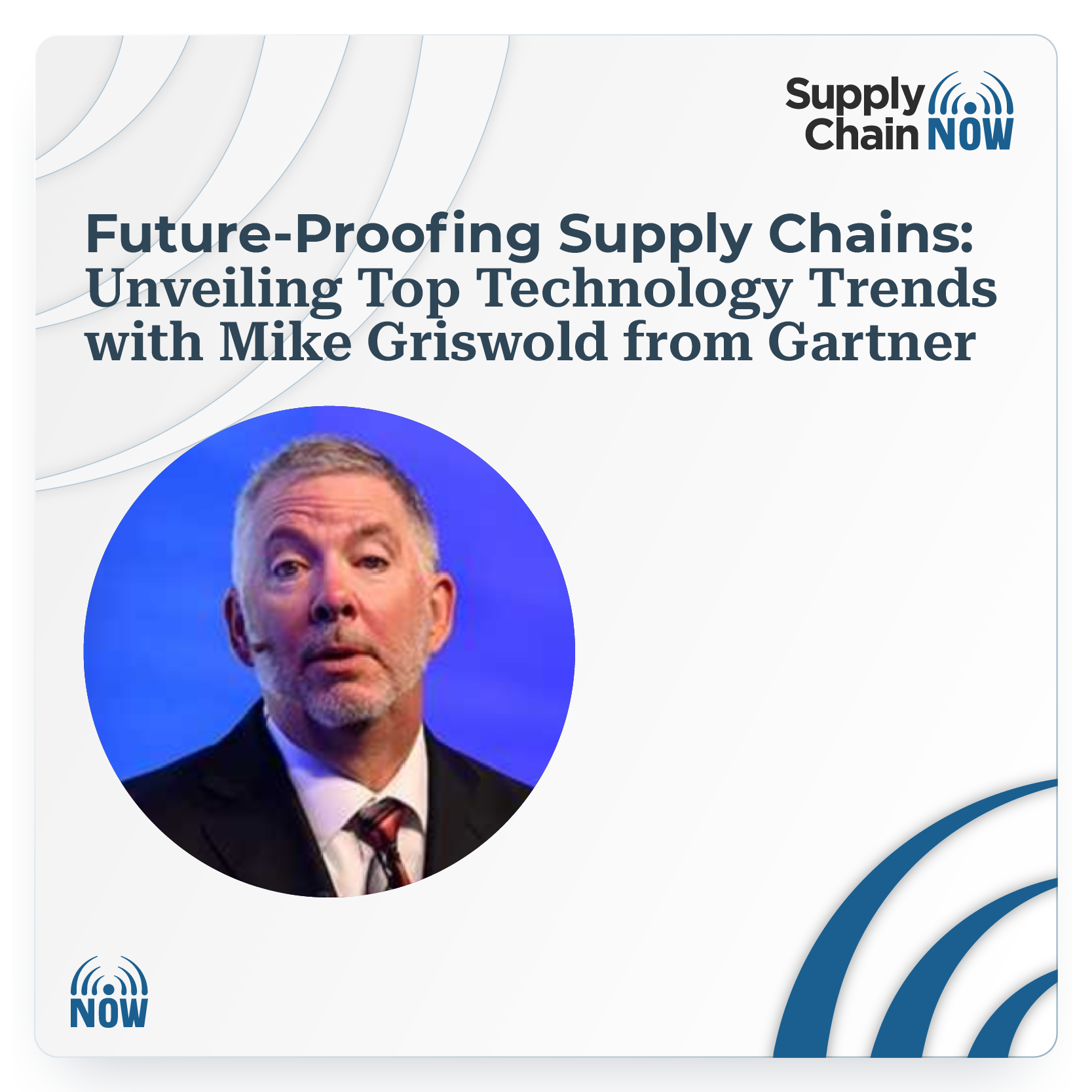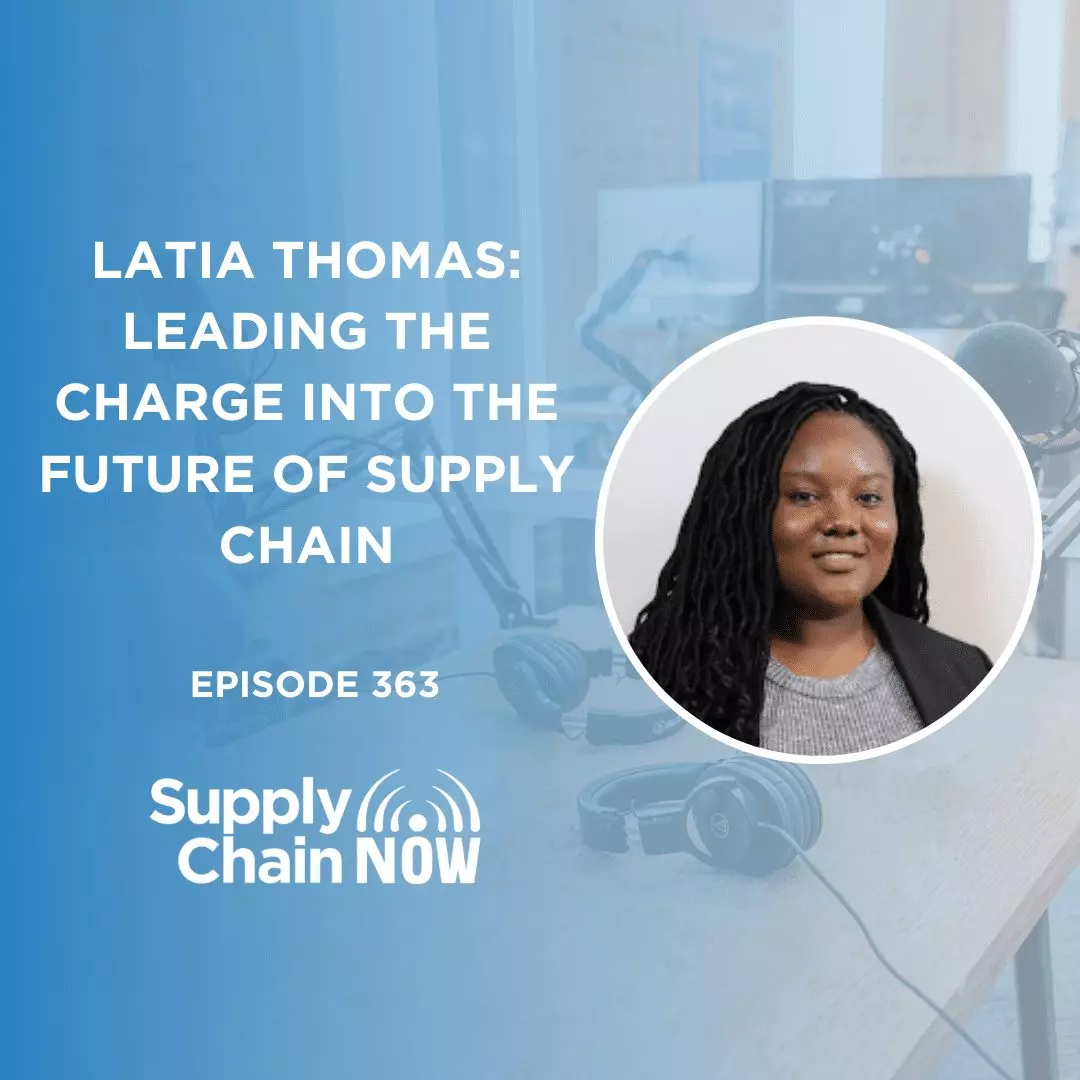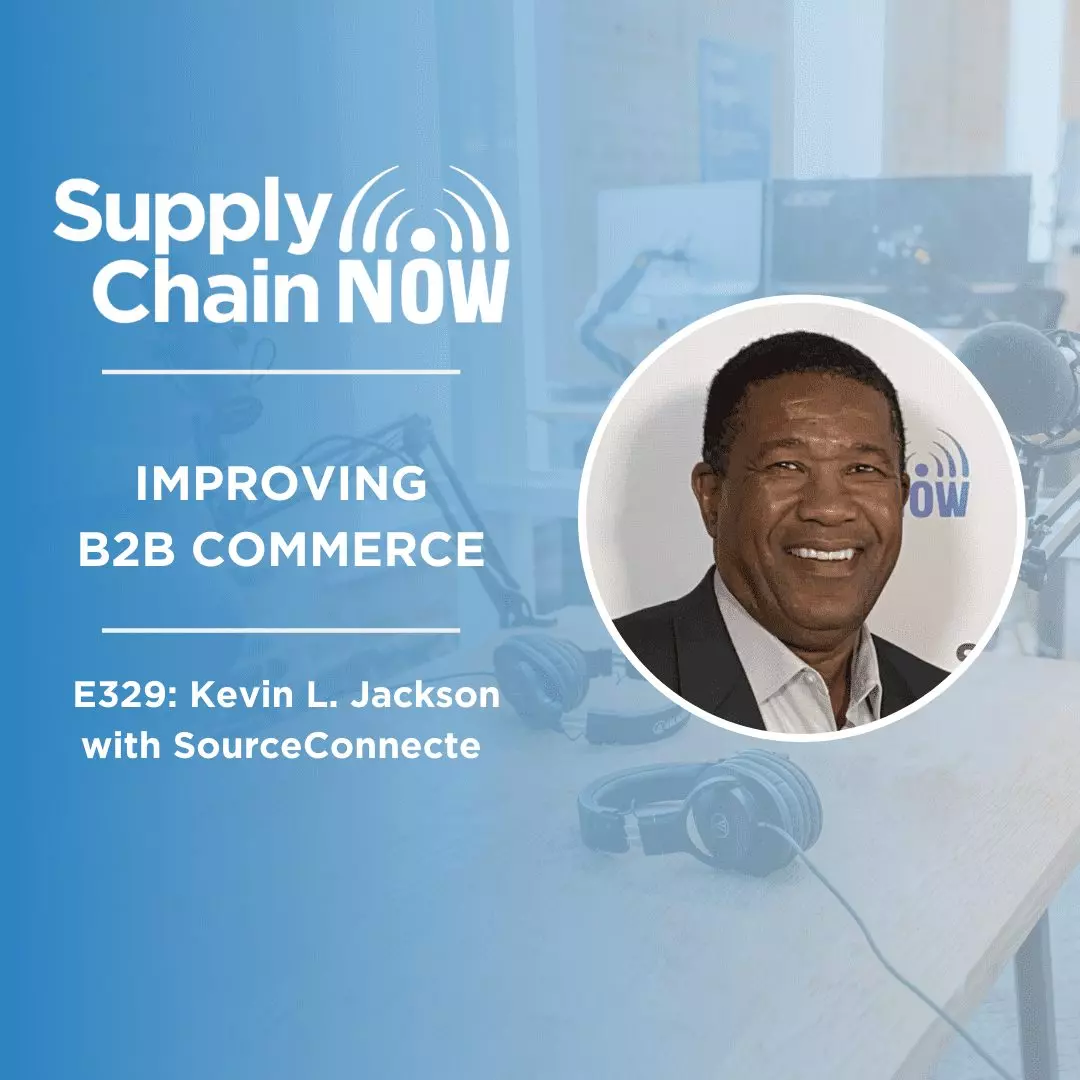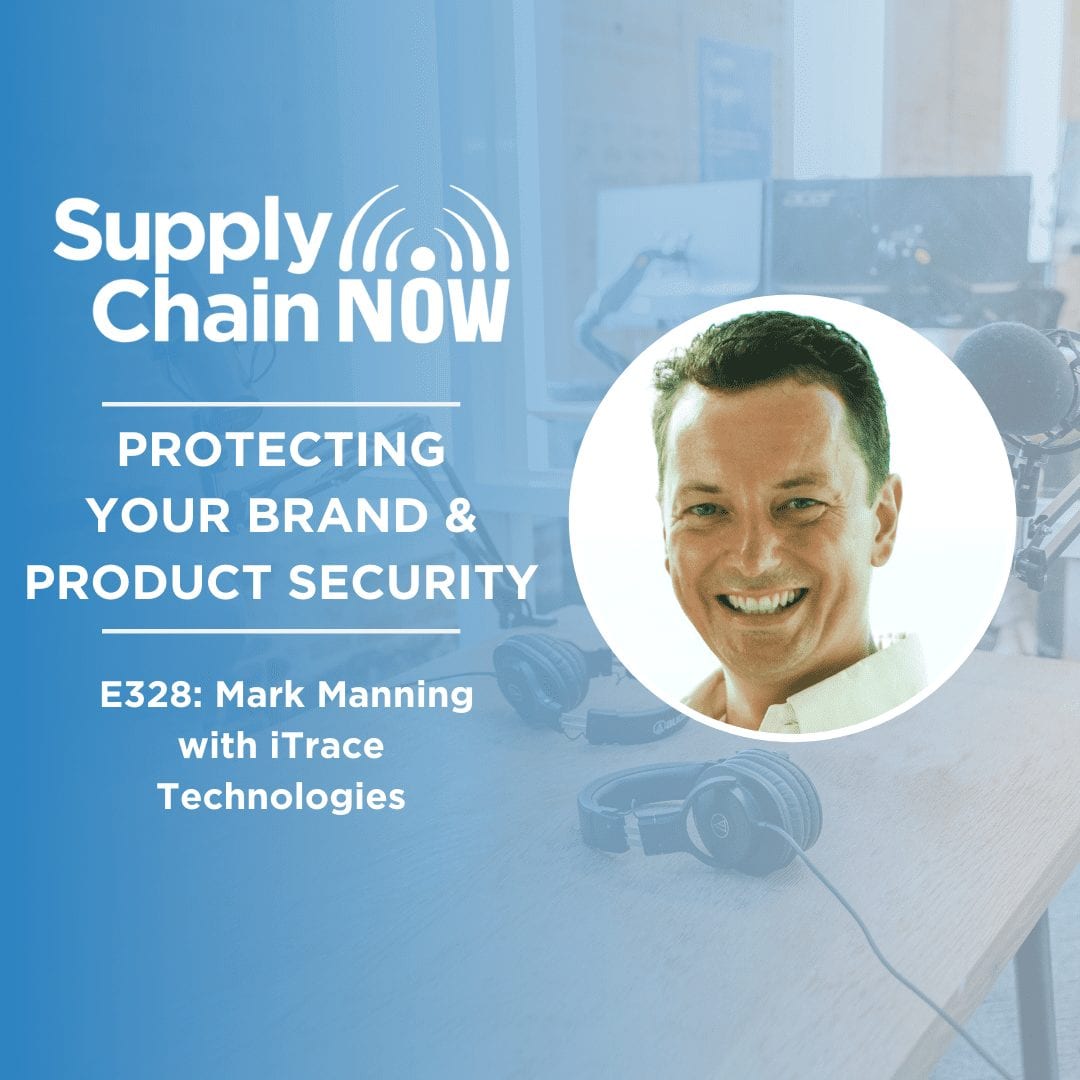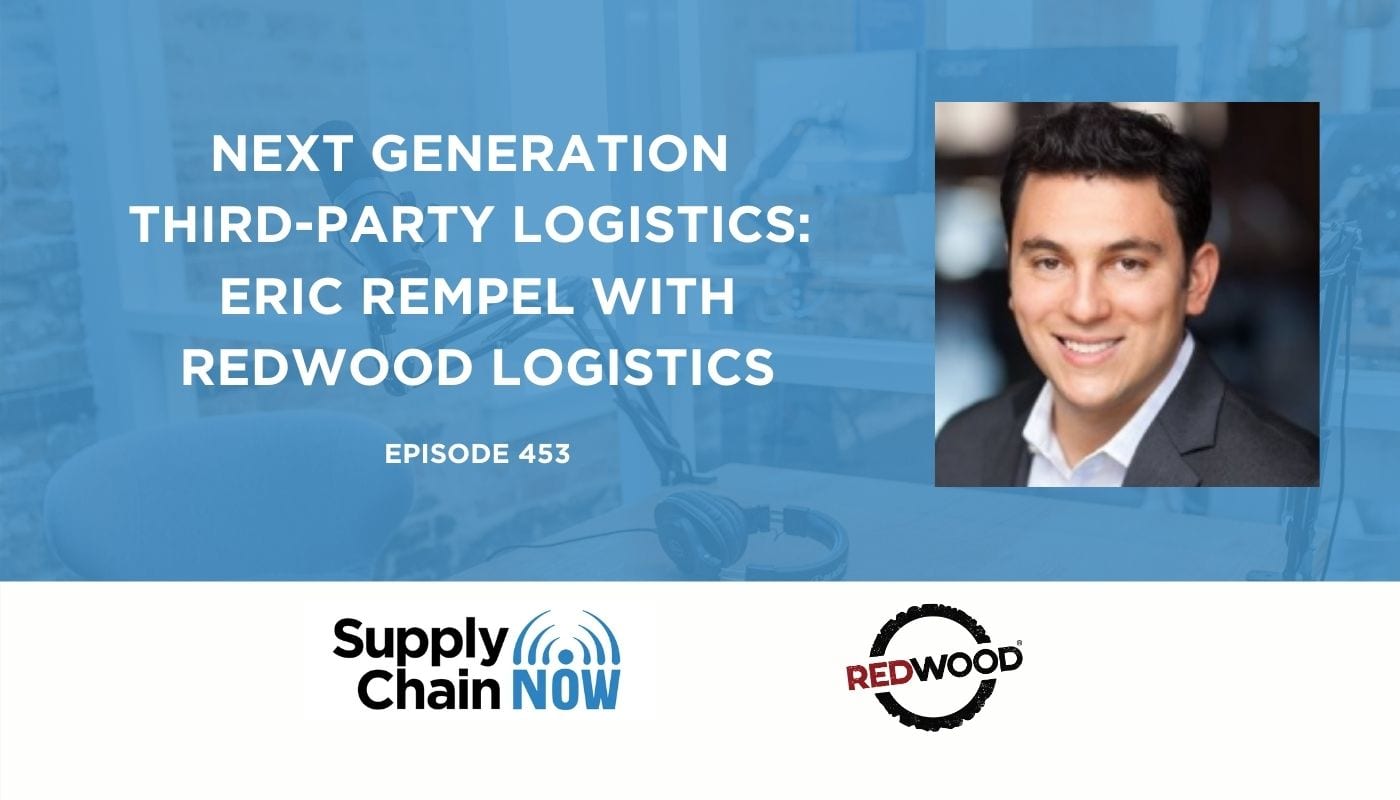
Episode Summary
“Can we orchestrate and choreograph the way data has to move in the same manner that we choreograph and orchestrate how freight has to move? If we do that, we’re doing a good job.”
Eric Rempel, Chief Innovation Officer at Redwood Logistics
Through a series of professional twists and turns, Eric Rempel went from studying computer engineering in math in college to industrial engineering, consumer packaging, and – finally – freight brokerage. Fortunately for him, it was a highly entrepreneurial environment, one that gave him plenty of opportunities to learn and innovate.
Continuing in that spirit, today he is focused using on Redwood Logistics’ serverless platform to solve problems without writing code. The platform can handle data integrations, trading, partner integration, sending data to data warehouses, anything that requires natively moving pieces of information from one system to another.
In this conversation, Eric tells Supply Chain Now Co-hosts Greg White and Scott Luton:
· Why it is a good thing when a customer approaches his team with an “absurd” request or goal, especially when you have a great team to throw at the problem
· How communication continues to be a challenge, whether that means human communication or communication between systems
· That doing something for a long time doesn’t automatically make you an innovator or an authority on that subject
Episode Transcript
Intro (00:05):
It’s time for supply chain. Now broadcasting live from the supply chain capital of the country. Atlanta, Georgia heard around the world. Supply chain. Now spotlights the best in all things. Supply chain, the people, the technologies, the best practices and the critical issues of the day. And now here are your hosts.
Scott Luton (00:28):
Hey, good afternoon by Scott Luton, Greg white. And we’ll heroine with you here on supply chain. Now, welcome to today’s show Greg, how are you doing? I am doing quite well. Scott, how are you doing fantastic. All off on the heels of a wonderful live stream earlier, and we’ll how are you doing lovely, my friend. Good to see ya. The Cardinals are fighting and what to talk all about baseball later, later this week, maybe, but today on this show, we’ve got a next generation leader in third party logistics, outstanding show lined up, uh, and we’re all gonna be working hard here to increase your supply chain IQ. Some more. Come on that in just a minute quick programming, Greg, if folks enjoyed this show, where do we typically direct them to typically we direct them to wherever they get their podcasts from or supply chain now radio.com.
Scott Luton (01:19):
That’s right. YouTube. It’s just that easy. It is. So with no further ado, let’s bring on and welcome our featured guests here today. Eric [inaudible] chief innovation officer with Redwood logistics, Eric, how are you doing? I’m doing well. How you doing fellas? Good. Good, fantastic, fantastic. Really excited to learn more about the Redwood story. We’ve been pleased to feature a few of your colleagues and earlier shows. It’s fascinating. The y’all have been owned the move. Put it simply a, so we’ll talk about that in just a minute, but for starters will and Greg don’t, y’all want to learn a little bit more about Eric rim pill, right? Let’s get, let’s get his story. So Eric, before we taught Redwood logistics, let’s get it. Let’s dive into your story a little bit. So where are you from? And, and, you know, give us the goods on your upbringing a little bit.
Eric Remple (02:10):
Yeah, sure. Well first thank you for having me. I really appreciate it. Um, and this is a great show, so honored to be here, you know, I’m, uh, I’m kinda your, your typical immigrant story. Uh, I’m was born here in the United States, born and raised in Chicago. My parents came here from the former Soviet union, uh, with, uh, not much besides my sister and the stuff they had on them. So, you know, we’re very fortunate to be born in this country and to have the opportunities that it brings, uh, which also means that, you know, my dad was always a tiger mom growing up and telling me to study constantly and read. And, you know, when I finished that read another book. So, uh, that kind of pressure was always on top of me, but I don’t think that’s anything special. Um, but it’s been, it’s been great, you know, a very traditional upbringing, um, just, you know, I’m always math and science leaning, but you know, nothing out of the ordinary and just, uh, just happy to, uh, you know, share
Eric Remple (03:00):
That part.
Greg White (03:00):
What part of the Soviet union, any particular country or the main Russian part or what, from a Republic Moldova, which is, Oh yes.
Eric Remple (03:08):
Landlocked country between Romania and Ukraine. Yeah. One of the poorest in Eastern Europe. So we got, I got that record, which is awesome.
Greg White (03:17):
One of our scientists at blue Ridge was from Moldova of all things. I actually studied Soviet politics in college, so
Eric Remple (03:25):
No kidding. No you’re with the area. So yeah. Uh, which means that, uh, the history says that that someone probably died of alcohol poisoning at some.
Greg White (03:34):
Yeah. It’s, it’s amazing when you look at where that country is, how they can be landlocked. I mean, it was like somebody slipped the country and under there. Right, right. Just to keep them from, from the seat.
Eric Remple (03:46):
Amazing. Yeah. Yeah, absolutely.
Scott Luton (03:48):
Let’s talk. Before we dive into your professional journey, uh, you live in an out and just an incredible city of Chicago, what’s, what’s something and, and, and born and raised there. What, what’s, what’s something that you really love about city you live in? Well, you know, with
Eric Remple (04:03):
COVID right now, it’s obviously tougher, but, um, you can still make everything work, you know, especially with two kids right now, I’m just having a great time. We’re out on bike rides all the time, taking advantage of the great weather, you know, for a lockdown summer, the weather in Chicago has been absolutely fantastic this summer. Um, and just spending as much time as I can with them. Cause, you know, before this all happened, I was always at the office or on the road or traveling or, you know, staying in some hotel and um, you know, you find a way to be productive, but also appreciate your family now. And it’s, it’s, it’s great at the beginning I was losing my mind, like we all were I’m sure. But, uh, you know, there’s a lot of good things about it too.
Scott Luton (04:40):
All right. One last question. So you were talking earlier about your parents advice, endless advice as you’re growing up, uh, and, and your children a little bit young five and three, but is there one thing that you’re really advising your five-year-old at? What, what’s the one piece of advice you go back to with him or her regularly?
Eric Remple (04:59):
Well, my boy is still just a monster that loves to make a mess. So just, you know, we’re just trying to survive there. Uh, but with, with my girl, it’s just facilitating whatever she wants to do. If she’s interested in something or if she wants to play, you know, I was, I was so lucky, you know, we didn’t have much growing up in 1985. My dad brought home, uh, like an old Dell, two 86 computer and that like changed my life. And that kinda got me down the track that I’m in and led to, you know, some business ventures and, you know, just, you know, becoming part of who I am, where he brought out something in me that I didn’t even know I had. Um, so just trying to, you know, facilitate what she enjoys and, and, you know, she loves drawings. I draw with her all the time. Just stuff like that is it’s been awesome. You know, and I’m not going to sugar coat it,
Greg White (05:45):
It was a well-worded question, Scott, because I think essentially what you’re asking is in what way have you become your parents? How is it parents are going?
Greg White (05:58):
I talked to you that yeah. Um, drop driving, Greg. All right. Uh, so let’s talk a little bit about your professional journey. So I’m interested in who, besides your parents, might’ve influenced, um, you know, how you see the world or how you’ve driven your career, how it might have pivoted throughout your career, but also tell us a little bit about how you came, how you came up through the ranks, uh, before you got to Redwood.
Eric Remple (06:23):
Yeah. You know, it, it was always just kinda, you know, trying to figure out a way to hustle when, um, you know, my, my parents, when they did come here, they wanted to grow up me to grow up in a community that had good schools. Right. So, uh, we made it to that, to that suburb, but we didn’t have, uh, you know, we didn’t have much money. Um, so, you know, just kind of seeing a lot of kids that had a lot of money. It was, it was fine. It didn’t bother me much, but I wanted to earn it on my own. Um, so it, it, it got me to a place where, you know, I did what I could, you know, garage sales as a kid. And then, uh, once I, you know, got a little bit older with some friends in high school, we started building websites that lasted through college and, you know, met some neat folks.
Eric Remple (07:01):
And it’s actually a way in which I met some of the Redwood folks was through that, uh, business that I have at, that comes later. Um, and it was just, you know, figuring out a way to do something that I really enjoyed, which was always a combination of like art and technology and merging those things together and making people happy at the end of the day, where they had like a vision for how they want to see something. And, you know, I have the ability to make that happen. And that’s a really rewarding feeling that I was fortunate enough to learn when I was young.
Greg White (07:28):
You know, it’s interesting. I think a lot of people also after they went crazy during the pandemic, a lot of people have come around to that asking them that they’re asking themselves that question, why am I doing this? Right. I mean, people have had a lot of time to, uh, reflect. And so it’s interesting that you, you knew that from a really early age. Um, so tell, do, tell us about how your business, you know, or, or how it led up to you getting to Redwood I’m interested in.
Eric Remple (07:59):
Yeah. I mean, if you want to talk about like a total random journey, that’s really what it is. And I think, you know, we were chatting before, uh, you know, earlier that, you know, most folks in supply chain didn’t come from supply chain, but that started to change. You said, you know, I, I was one of those folks that didn’t come from supply chain. So, um, my background in college was studying computer engineering and math. So I did stuff like chip design and, you know, super exciting stuff like that for any of your listeners that care. But, uh, you know, I, I absolutely loved it. Um, but I graduated right after nine 11. Uh, so the job market was, was not great. Um, and it was tough. There were a lot of hiring freezes at, you know, chip makers and traditional places that, you know, you get recruited to when you’ve got that kind of degree.
Eric Remple (08:41):
So, um, I did what I could, and I found a, an engineering shop in the Chicago area that, um, you know, had a neat product and some neat industrial machinery that they were building, but, um, they didn’t have the money to pay full time. So I took a part time job working there a while, um, while the market was still, you know, totally in the dumps. And, um, I just learned a ton. Um, I learned a lot of practical application for what I learned at school and ended up, uh, building some machinery that created, um, a lot of the cookies that come out of like Pillsbury and craft and Pepperidge farm machines, um, where we just cut food at super duper high speeds. And, uh, it goes off into the packaging systems after that. So learned a ton and helped get that company going down a positive trajectory, but quickly learn that, you know, the organization wasn’t being run that well at the top.
Eric Remple (09:27):
And it was this time for me to go. So, um, at that time, when I was making those machines, I was using Redwood to do my logistics and to move, move my machines, you know, across the country. Um, and you know, that relationship was always there and we were just friends and some folks I knew, you know, from, from earlier in my life. And, uh, I got a phone call that they wanted to do a website and, you know, just make, uh, this is 2003, 2004. So they wanted a website for the business. And, um, I figured, well, you know, I’m about to go to business school, I’d taken the MBA. And I was going down that path and I walked into, uh, you know, for the Chicago listeners XRT is playing, it’s like a local rock station in Chicago. XRT is playing on the radio. And, you know, like everyone’s just on the phone and having fun, your traditional brokerage. And I was just blown away by the energy and that it didn’t have to be cubicles up stuffy, traditional work environment. And that piqued my interest immediately. Um, at which point then, um, I learned what they did and from there, you know, the relationship began.
Greg White (10:29):
So did you go on to school and then go to Redwood or,
Eric Remple (10:33):
Or never made it to school? Never made,
Greg White (10:37):
I mean, get into it. Right. Uh, yeah. I think that when you, when you find that right place, that’s, it’s, it’s good to do that, right? Yeah. Yeah. Um, well, I’ll tell you a story later off, off, long in year,
Eric Remple (10:52):
It goes both ways for sure. But for me, at least, um, I was learning, just drinking from a fire hose daily and, you know, not even having the time to think about going to school after I decided to hook up with those, you know, those folks was kind of giving me the answer I was looking for
Greg White (11:08):
School of life. And so take us a little bit through that, your journey at Redwood logistics and a little bit about what the company does and, uh, you know, and, and, uh, share that with, with our audience.
Eric Remple (11:20):
Yeah. So it’s a really entrepreneurial organization, you know, has been from day one. So I was fortunate to hookup with the guys that started it. Uh, it started in 2001, so three years before I got there. Um, and it was a traditional, you know, ch Robinson defector, you know, former American Backhaulers, uh, uh, organization where, um, you know, the story goes for guys in a card table and that’s, and that’s what it was. Um, you know, one of those guys is now our, you know, our president who was at the lowest of the ranks, right. So, so we’ve grown and matured and gone through that process. Um, but it was a brokerage through, and, and I joined it when it was a brokerage. Um, but there was that, that hustle that I was telling you about earlier that was, was fascinating. And right around the time I came on board, um, we quickly decided to, you know, explain to them my technology skills.
Eric Remple (12:06):
And they kind of knew me already. So we put a team together and we started building our own TMS for the organization. Um, at the same time, started a trucking company, right. So when asset based as well, um, you know, just cause our customers were telling us that they wanted that as part of our portfolio, um, you know, it, it it’s that entrepreneurial spirit that grew, which is we’re willing to take a calculated, but lower risk, a chance on things. And that still continues all the way through today to where we are a much different organization than we were back there. But that, that energy, right. Those, those roots still, still are strong today.
Greg White (12:41):
That’s good. That’s, I mean, that’s a good culture appropriately dangerous. Right. So, um, so your role, um, chief innovation officer, I bet a lot of people don’t know what that role means, and I bet the people that do know what that role means probably don’t know what you do on a day to day basis. So share a little bit of,
Eric Remple (13:03):
Well, sometimes I don’t know what it means. So in fairness, right?
Greg White (13:06):
Yeah. I mean, I think that it’s an, it’s the entrepreneurial spirit of your culture. I imagine to some extent
Eric Remple (13:12):
It really is, you know, I played the role of CTO and CIO, you know, whatever that, that really means for an organization of our size as we’ve been growing. Um, but we brought in some, some really talented folks from, you know, from echo and XPO to play those roles today. Um, and right now, you know, a big thing of what I do and, and, you know, I think we’ll get to talking about Redwood connect later, but, um, you know, after having built that, which was, you know, one of our largest innovations, um, now is the time to help, you know, in what I’m doing here, quite honestly, on this podcast, you know, let, let folks know what that innovation does, what it means, helping evangelizing it internally and externally. Um, you know, you still have to sell it internally. You need to let people know what this new thing does that they didn’t know existed.
Eric Remple (13:54):
And therefore they never desired it before they didn’t know it existed. So you have to, you have to help, you know, create, create a groundswell. Um, because we do believe that we have something that’s, that’s pretty game changing, but at the same time, uh, folks need to recognize that the challenges that it solves. So, um, you know, to kind of go back to your question, what is it that I do? Um, I helped talk about the innovations that we’ve created, but I also, when there’s a tough challenge or a customer asks us for something absurd, which is a good thing, right. Absurd in a good way. Um, you know, I’ll get involved in the middle of that quickly and just kinda, you know, at a high level architect where that fits into our organization. And then we’ve got really talented folks that run with it from there that just do a great job. So
Greg White (14:33):
I got to ask you, what is your favorite, or maybe the one you see the most interest in, of your innovations that, that you present. Yeah.
Eric Remple (14:41):
And what we’ve created, it’s, it’s the connect platform. So we built this whole thing in a totally different way than we’ve done anything before. Uh, we’ve the, the architecture type of compute resources we use. Uh, the fact that, you know, it’s built in a serverless fashion. It’s, it’s this incredible platform that basically lets you solve problems without writing code. Um, and we’re using it to do data integrations, trading, partner integration, sending data to data warehouses, um, moving, you know, really tough, uh, you know, pieces of information from one system to another as if those systems natively talk to each other. So that right there to anyone who’s lived there last 16 years, like I have in logistics where every problem has to do with things, not communicating, whether that’s humans not communicating or systems being unable to communicate it, it changes everything.
Scott Luton (15:32):
So, Hey, I know we’re going to talk disruption in a second we’ll but one quick question, before we do, I love your comment there, Eric, about those absurd questions and how that gives you a chance to get involved and, and drive improvement, drive innovation, uh, I’d argue that those sort of questions and what helps us make the improvements and really pioneer new things and industry, would you agree?
Eric Remple (15:53):
Absolutely. I mean, we had a, we had a guy at our company several years back and he, he coined the term too hard pile. Um, and when a customer or internally have something for the too hard pile, you know, that’s when my team just jumps. Um, and those problems while, you know, others might say, Oh, that’s silly. Why would you do it that way? There’s a need and they have a pain point. And if we can understand and empathize with that pain point that they have, um, there’s opportunity there, there, there always is.
Scott Luton (16:21):
And the four guys and the car table that the, uh, the too hard pile, Greg, when I hear stuff like that, it reminds me of, of, of what you had at one of your ventures, uh, hashtag startup life. And whenever you and the team experienced something and related to startup life, y’all just had a running list, right? Yeah. Joys or woes or excitement, a win, a big loss, whatever it was therapeutic for the most part. I mean, you just put up and went up and put a hash Mark and then you could turn and evangelize or witness or cry or share, or just go back to your seat. But it, it, it was
Eric Remple (16:59):
[inaudible]
Scott Luton (17:00):
To be able to release that or express that. Yeah. I mean, those kinds of moments are critical to the culture of a company. I’m going to go get a, a bucket from a local hardware store and I’m gonna label it my two hard pile and some of the things that we just can’t do, I’m a third right. In that bucket. So Eric, I appreciate the idea. All right, well, let’s talk disruption. There’s, there’s been no shortage of that here.
Eric Remple (17:24):
Yeah. So Eric, my question is, so we understand, you know, we talked to a lot of different people in supply chain and customers and suppliers and retailers, and, and uh, obviously in our current moment, everything in their supply chain has, has been disrupted and they’ve been consistently adjusting. But one of the things we’ve heard a lot about is having to, because the overseas suppliers products and sourcing has been, uh, certainly disrupted or largely just taken away that a lot of companies have had to double down on their regional supply networks, you know, and do a lot of near storing and that, and that sort of thing. And, uh, we, one of the things we want to ask you is how is Redwood seeing that amongst your marketplace, because of the flexibility that you guys are in, certainly having assets as well. You know, just being able to provide flexibility and agility in a town like this, you know, I think to kind of tie it into the, to the too hard pile, right?
Eric Remple (18:26):
Like yesterday’s too hard pile is today’s old news, right? So, um, not to sound like that’s old news and we’re just, you know, kicking back with our legs up on the desks at Redwood, remotely from home, but it’s more of, um, you know, how can we take what we’ve been doing for a decade now, which is telling our customers, Hey, your systems are awesome. Your partners are awesome, right? And obviously with a shift from, you know, China and a lot happening in Mexico now, and, you know, we’ve invested in cross border. And, you know, we were dealing with the capacity crunch down on the border at all at all the cross border towns and, you know, really strengthening up our capabilities there. So we can be the direct service partners to our customers, um, from a tech perspective as well. It’s, Hey, those systems are talking and your trading partners are quickly connected.
Eric Remple (19:13):
Then we can eliminate all of those humans going back and forth, whether it’s paper or voice or anything else that just slows that process down, especially when you’ve moved from what might’ve been a stable operation of automatically, maybe EDI, maybe something else to, you know, overseas now down to new providers in Mexico. So it’s really on our end. Can we orchestrate and choreograph the way data has to move in the same manner that we choreograph and orchestrate how freight has to move. And if we do that, we’re doing a good job. Is that what you’d say? Sort of the biggest, the biggest thing you’ve seen in this call the last six months, as far as, you know, uh, that transference of data, that communication, um, being the biggest being the biggest trend, I think for the organizations that have set up their, their data and their connectivity strategies, they’re a step ahead of the game.
Eric Remple (20:05):
You know, they actually can be more nimble and more agile and maybe hook up more trading partners that when someone is out of capacity, right? Whether it’s for transportation or the actual product itself, right. They can react more appropriately. Um, but I, I do think that it’s just a general theme that everyone is marching towards and has been for again, you know, we could say a decade, but for sure longer than that, it’s just technology is getting better. And it’s just a trend that’s continuing to happen, but COGA just, you know, give it a shot of adrenaline. You’ve already touched on Redwood connect 2.0, and I love how you put it, that you can solve problems without writing code for the non technologists. And me, that is a beautiful thing to hear. Right. Cause, uh, as a reason
Scott Luton (20:48):
I got out of computer science when I was in school, cause I was terrible at coding. Let’s talk more about that because that’s a huge announcement. It came out, I think in July, is that right? July was, it was when you made the splash with it.
Eric Remple (21:00):
I’ll be honest. I have a hard time remembering what date is today, but I’m going to go with that sounds right. It might be a little bit before that, but yeah,
Scott Luton (21:06):
Fair. That day is Monday Eric. That’s right. That’s right. Let’s when you, when you, when you put your customer lens on and, and, and you’re interpreting a Redwood connect 2.0 and evaluating it, what do you think the biggest winner two is going to be for your customers with this, this big development?
Eric Remple (21:24):
Yeah. It’s just low risk, high value integrations. So we’ve done this so many times and we’ve integrated mercury gate and OTM and a whole suite of products to, you know, the Redwood connect platform so that our customers could just connect once like a USB plug and then we’ll hook them up to everything else. We’ll translate their data. So it matches and we’ll even translate it back so that their systems can, can take the information and it’s seamless. But what, what that really does from a nontechnical perspective is if they have a need for their systems to automate or operate in a more effective manner, or even just bring, you know, a, a simple new system into play like a TMS, um, it becomes this giant, uh, like almost like you’re jumping the chasm, right? It’s like, there’s this giant question. Can it handle it? Do they have the bandwidth?
Eric Remple (22:15):
Will they get it right? Do they understand the logistics objects? Do they know how to connect to SAP? Or do they know what Oracle needs? All of those things that we’ve done so many times. And then on top of that, it’s not just doing it once, but it’s doing it at scale, right? So we, you know, we’re moving over three and a half billion dollars of freight through this platform where it’s like, it has to scale automatically, right? So thousands and thousands and thousands of servers operating in parallel automatically shutting themselves off when they don’t have to be on, um, you know, saving our customers money. But they don’t think about that stuff. They just know that I pressed, uh, I created an order in my ERP and there it is in the TMS and I can plan on it or we can do bulk planning or we can, you know, check for, you know, if things are on hold in a, in a WMS and feed that information back in. So, you know, that’s where our supply chain customer. And going back to your question, if a supply chain customer says, man, if I had the opportunity to have this automated, I would have all this time left that I could finally get to that slotting program I wanted to deal with in my warehouse or whatever. Right. And it’s, it just, it creates it bridges that gap between idea and an automated supply chain
Scott Luton (23:21):
Freeing up time. Holy cow, there’s so much value there. And you know, there’s so many projects, you, you, you, you said it well air, so many projects, uh, that that folks can’t get to because they’re, you know, they’re putting fires out, they’re moving, they’re moving freight. And I’m not sure if they’re moving 3.5 billion freight and freight that you are, but you know, freeing up that time so they can make other improvements and deal with other, other, um, items in the business. That’s a huge value there. Uh, Greg, I know you’re chomping at the bit. When you hear things like this and the tech this year, just the technology side of the business. I can only imagine when you’re moving that much freight and your aim is to make it that simple for your customers, right? What are you hearing there? [inaudible], that’s what I hear. I mean, will, and I have both used this term in previous life, you know, enterprise class functionality, but app simplicity and, and, and that, and the, the demand for that is accelerating.
Scott Luton (24:19):
As we bring in these newer generations, generation X, Y, and Z, all of whom are used to just turning it on. And it works. Um, that, that capability is so freeing for the user, as Eric talked about, they just know that it works, right. I create an order. It goes to the TMS, the data goes wherever I need it. I don’t have to worry about plugging it in the days of years, long hundred million dollar implementations of technology, except for a few companies are over. And the tolerance for that, even in those companies who are stuck with big systems that require that the tolerance, even in those companies is very, very low. And that’s evidenced by the fact that the biggest the SAP is in the Oracles and others are responding to that and starting to bring down the overhead of their own implementations. So technologies like this, that just plug in and work and make things happen. They’re the future so much good stuff there. I’ve got one more kind of broader question for Eric, but what will, um, you just, you mentioned simplicity and simplicity is such a beautiful thing in this complex world ever changing rapidly changing where we live in. What else did you hear there? And some of Eric’s perspective.
Will Haraway (25:38):
Oh, well, I mean, simply that, not to that, that is the key. I mean that when you and behind red would connect the whole philosophy, if I’m catching this correctly, I guess that you do have all of these disparate, you know, people are the way a supply chain can work, especially if it’s a growing company, is that they’re just looking up different stuff as they need it, honestly, you know, they can have a WMS TMS, you know, uh, uh, freight, freight brokerage, all of these things, trying to hook up together and talk, which seems easy. And in theory, until it gets done in practice, and it sounds like that’s the, the, the, the main problem of communication that you’re trying to solve with red, with red, with connect.
Scott Luton (26:24):
Yeah. That connectivity is so critical, right? Yeah. You know, I mean, going back to startup life, right. It’s all about, you know, failing and learning from those failures to be a catalyst for something else you do, you know, but it was, uh, before we started building Redwood connect in 2013, we already had four years under our belt of doing connectivity the old way, which was,
Eric Remple (26:44):
You know, think of like a bunch of point to point connections where someone’s just dragging an extension cord from every start to every finish. And we have a tangled web of a mess that eventually, you know, failed on us. Um, so when I was pitching this to the organization to build it, you know, we actually called it the, uh, the, I don’t know machine. Right. Cause what our customers need. I don’t know, what are they going to send us? I don’t know, what do we have to do if their data fails? I don’t know. And so we needed a way to handle all of that. Um, and that was kind of the Genesis for connect, which is, you know, to your point on simplicity, it’s just got to work. And, uh, and we’re pretty, we’re pretty fortunate that we made that happen
Scott Luton (27:17):
And it’s just got to work. And oftentimes customers, they don’t necessarily care how it works. They just care that it does work when they need it. Right. They don’t care at all, how it works, not one bit, it just better work.
Eric Remple (27:30):
It’s a utility. And it has to be you, you want, you expect your plumbing to work. You expect your power to work. You’re not thinking about it, but when it’s not working, you’re, you’re complaining
Scott Luton (27:38):
What an exciting developments been interesting to see just, just how y’all have continued to grow, but I’ll always appreciate, you know, the growth stories are always really neat to watch and you can learn a ton of, uh, business lessons learned and, and, uh, pick up insights and observations. But what I really like is when we talk with business leaders like you, where you’re growing, but you’re not sitting on laurels and selling just what you’ve, you’ve always sold. You’re, you’re really transforming the business, uh, in a way that, that, you know, gives, gives your customers more and more. And that that’s where I think a lot of secret sauces. So if we can leave Redwood connect to a 2.0 for a second, cause I’ve got a broader question. Will Greg anything else about the new platform that you’d like to ask Eric? I’ve got a lot of things I want to add.
Eric Remple (28:27):
Okay. All right. Sorry.
Scott Luton (28:30):
Permission. All right. Good, good, good. So, Eric, going back to your roots of, of implementing automation in, in factory floors, right? That’s I bet you, you could write a book about change and continuous improvement and automation there, but reflecting on that and reflecting on how you are on the technology side of the business, enhancing, automating, uh, bringing more capacity and more capabilities, driving more change what what’s a, um, a great rule of thumb you’ve learned when it comes to driving change in industry. What’s, what’s a couple of your best practices.
Eric Remple (29:08):
Yeah. I think I’ll answer the driving change. Second. I think something important to people like myself, or you want to maybe put us on the slightly crazy spectrum of innovators is a, just because someone’s been doing something for a long time, doesn’t mean you have to listen to them. Um, you know, I’ve been told no and no way, and that’s nuts, uh, more times than I can remember. Um, you know, cause when you can see something and you know, maybe wine before its time, you know, don’t, don’t let that, don’t let that knock you down. Um, if you feel people’s pain and you see a solution and you can figure out how to connect those dots and hopefully make money in between, um, don’t let anyone get in your way.
Scott Luton (29:47):
You can’t listen to the naysayers. Otherwise nothing improves nothing. Nothing’s innovated nothing’s delivered. I love that. So looking forward, looking ahead, right. 20, 21, I know we’re all looking forward to getting into a new year, right? What, what, what excites you the most about the new year?
Eric Remple (30:04):
We’re really excited about where we’re going to take Redwood next year. You know, um, I, right now where we’re at with connect is we built and launched the platform that integrates all of our customers. Um, as well as, you know, our internal systems, what we’re doing at Redwood now, now that that platform is able to connect our customers to the marketplace is, um, we, you know, we’ve, we’ve securely created all these API so that all their customers, all our customers can send in their data and their own secure pile and, you know, send it to their systems and databases that they care about. And data warehouses, what Redwood is working on now is what we’re, you know, we’re, we’re thinking about, you know, calling like the Redwood cloud, but what are all the widgets that we use for ourselves, right? Because we’re an open ecosystem.
Eric Remple (30:44):
We’ve always been open, even our freight management pick carriers. If you want to pick our competitors and your routing guide and not use Redwood, that’s cool. We started that way and we’ll always be that way. So we have this open ecosystem and now what we want to do is take some of the tools that we’ve developed and some new ones that we’ve been developing and start making those more commercially available to our customers to use like widgets or a marketplace. So that’ll be coming in 2021 from Redwood and that’s really exciting. Um, and it’s been great because, you know, for, you know, the last two and a half years, you know, after we got acquired by private equity, um, you know, we’ve actually had the ability to invest further and they believed in us in our vision and, you know, they, they say, you know, keep going down that path.
Eric Remple (31:22):
So, um, we are just now working with our customers to understand where their challenges are and figuring out what our product line looks like. Uh, we have a recent addition of a product off of chief product officer, you know, new CIO, new COO that are really aligned towards our vision, which is just do awesome stuff for our customer, you know, find a way to figure it out and, and create these neat solutions. And, um, I think from a work perspective, it’s going to be great and, uh, you know, from a life and everything perspective, you know, let’s, let’s get that vaccine and get out there again.
Scott Luton (31:51):
Well, it sounds like me, uh, not only the hits keep coming from Redwood logistics, but sounds like a really cool place to work. Erica. I know you’ve got a busy calendar and we’ve taken a lot of your time here, Greg will. Uh, before we wrap up with Eric, any final comments when you’re all done, I’m glad to talk to another guy from the Midwest when he thinks it’s absurd. He says, it’s absurd when the answer is no, which is almost never, he says no, and if it ain’t broke break it. So I just love the spirit in which Eric approaches this. He is the right person for the right job right now. And, um, I think that confluence of the founders at, at Redwood and Eric were fortunate to find one another. I’m so glad you didn’t go get an MBA, Eric, because it would have only delayed and possibly up ended the possibility that you impact supply chain in the way that you have so far. So I appreciate that power. Just powerful stuff. Yes. Well put Greg.
Will Haraway (32:50):
Yeah. There’s so much about your story that I love. I mean, number one, that, that, you’re a Moldovan that in addition to that other, uh, to do the other connection with, with blue Ridge, which is, you know, friend of the show, we’ve had them on a we’ve, uh, Nick Darman shift from Archer hub. We’ve had a, he’s a, he’s a mole Devon as well. So it’s nice to, but we’re finding some supply chain connections over there as well.
Scott Luton (33:12):
Literally they didn’t spend time at the beach, they spend it at class, it’ll be in landlock has its benefits, right? Yeah.
Will Haraway (33:19):
On it. Um, that, uh, you know, I guess I was just disappointed that your dad didn’t bring, I thought for sure you were going to say Commodore 64 and I was going to be all over that. But, uh, but I could see, uh, I love that part of your story. And, uh, and, and, uh, the fact that your school was, uh, you know, doing machining and, and, uh, that’s, uh, that’s impressive and, and unique. And, and again, leads to the spirit of what this podcast is all about. Like how do people get into these positions and how do you get into supply chain? I mean, uh, you did it with working with your hands and using your mind at the same time. I mean, that’s, that’s a, that’s a big part of this industry.
Scott Luton (34:01):
An Eric talked about the intersection of art and technology and what a powerful place to be, right? Yes. All right. Well, uh, Eric really appreciate your time. Let’s make sure folks know how to connect with you and with Redwood logistics. Yeah. Cause that’s all right. So Eric, how can we connect with you and the organization? So you can reach me at LinkedIn, uh, Eric Rempel and, uh, our company website is Redwood logistics.com. Really appreciate your perspective here today. I love how simple you keep it. And I love the passion you bring, you know, uh, there’s. It is so evident the unique culture y’all have at Redwood logistics and wish you all continued growth and success. Thanks so much. Eric Rempel, chief innovation officer with Redwood logistics. Thanks, Eric. Thank you, Scott. You bet. Greg will another great show. Um, I love the visuals that Eric paints, right, Greg, first of all, I can’t tell you that we have had someone say, this is what’s coming in 2021.
Scott Luton (35:07):
And in a long time, I mean, everyone is so consumed with what’s going on now, so that not only do they have a great vision that they’re recognizing right now, but Eric is looking into the future beyond all of this. And I’m planning for how to bring additional benefit to their, their customers into the industry. That’s just really impressive that responsiveness to customer need first before that’s not the way we usually do it. That’s a really important to respond to the customer need and to turn that into what needs to be done and how to get it done is the, the right approach. Scott, you often say it begin with the end in mind, right. And work back from there. I’ll say that. It sounds too smart for me to say it. Um, you’re quoting someone else like I usually do. So. Yeah. Well, will I bet that that too hard pile is not a really big pile at Redwood?
Scott Luton (36:04):
What’s your final take? Oh yeah. I mean, that’s a, that’s the kind of thing that Eric and his team is here to solve. It sounds like to me, I think they dig that pile, man. I bet it’s a huge pile that they’re going no way. That is too hard. Well, great episode really appreciate Eric repels time with Redwood logistics, uh, on behalf of Greg white and we’ll hear away and really the whole team here at supply chain. Now, thanks for joining us. Hopefully you enjoyed the conversation as much as we did. Hey, do good gift forward and be the change that’s needed. And on that note, we’ll see, next time here.
Featured Guests

Eric Rempel In 2004, Eric joined Redwood as Chief Technology Officer, playing a vital role in the creation of what would become one of Redwood’s flagship products – its proprietary transportation management system (TMS) that combines historical analytics, market data and operational best practices. Eric led the design of Redwood’s TMS offering by integrating powerful transportation automation into customer supply chains, based on a web interface that can be accessed anywhere with an internet connection. TMS remains an integral part of the way Redwood delivers value to the company’s brokerage clients. Eric founded 3PLogic in 2009, which is known today as Redwood Supply Chain Solutions (“SCS”). With a strategic focus on integrated enterprise systems, the technology created at 3PLogic was the design catalyst for today’s supply-chain integration platform, RedwoodConnectSM. A platform so successful that Redwood’s Software as a Service TMS partner, MercuryGate, has named Redwood as its first and only Logistics Integrator Partner. From 2010 to 2015, under Eric’s leadership, Redwood SCS grew exponentially with over 8,000% advancement. The company’s achievement in developing customer-facing solutions and supply chain technology was recognized when Redwood earned a number three ranking on Crain’s Fast 50 List for 2016. In 2017, Eric was named Redwood’s Chief Innovation Officer. As CIO he is focused on developing diverse solutions and services for the company’s clients. Eric is a thought leader and national speaker on advanced technologies such as API-lead architecture, cloud computing, supply-chain integration & automation, big-data analytics, and emerging technologies. Eric is a Mulesoft Customer Advisory Board member, and a Blockchain in Transportation Alliance (BiTA) member. He holds a B.S., Computer Engineering and Mathematics from the University of Illinois at Urbana-Champaign.

Will Haraway is the Chief Content Officer for Lead Coverage and the Founder & Lead Evangelist at Backbeat Marketing. Will has 20 years of executive experience in B2B Technology Marketing. Will is a certified analyst relations practitioner by the Knowledge Capital Group and has helped companies including Manhattan Associates, Aptos, Atlantix Global Systems, American Software and Rubicon Global improve their brand reputations with marketing results that help increase sales. Will also serves as a member of the APICS Atlanta Executive Advisory Board.

